 Sign in
Sign in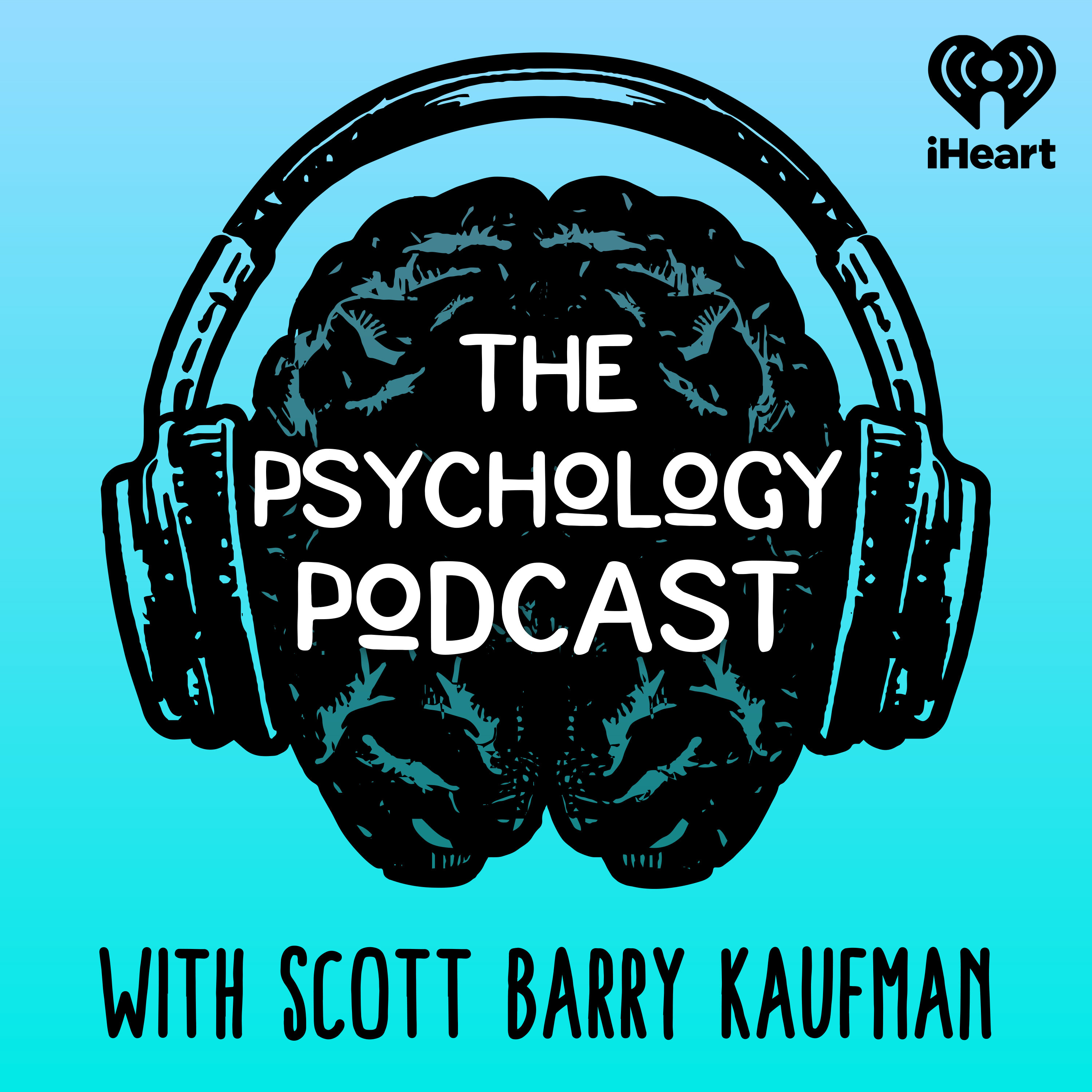
Science
iHeartPodcasts
In each episode, we talk with inspiring scientists, thinkers, and other self-actualized individuals who will give you a greater understanding of yourself, others, and the world we live in. Scott Barry Kaufman explores the depths of human potential and tries to get a glimpse into human possibility in every episode.
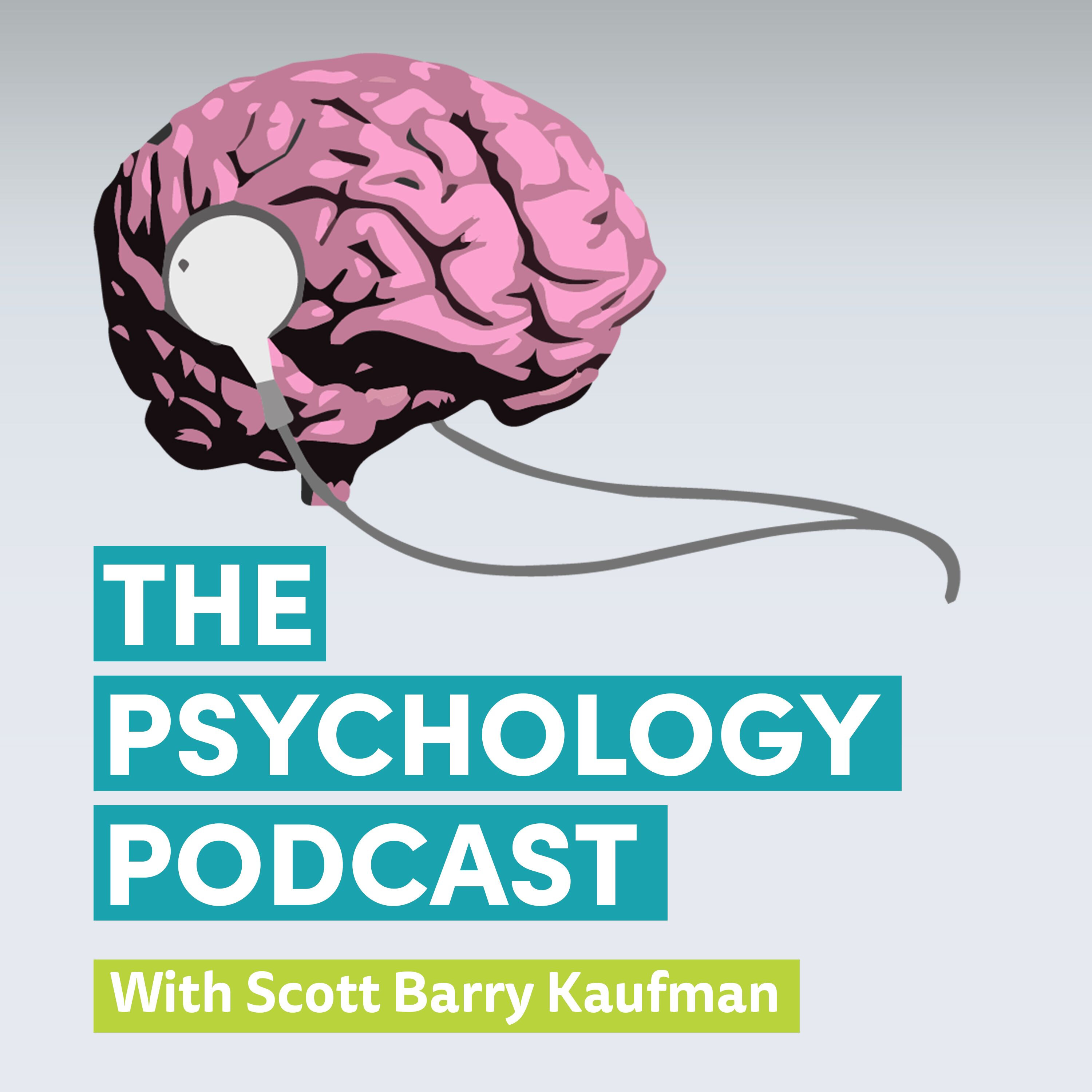
Max Lugavere || Heal Your Mind, Strengthen Your Body, and Become Extraordinary
Today it’s great to have Max Lugavere on the podcast. Max is a filmmaker, health and science journalist and the author of the New York Times best-selling book Genius Foods: Become Smarter, Happier, and More Productive While Protecting Your Brain for Life, which is now published in 8 languages around the globe. He is also the host of the #1 iTunes health podcast The Genius Life. Lugavere appears regularly on the Dr. Oz Show, the Rachael Ray Show, and The Doctors. He has contributed to Medscape, Vice, Fast Company, CNN, and the Daily Beast, has been featured on NBC Nightly News, The Today Show, and in The Wall Street Journal. He is a sought-after speaker and has given talks at South by Southwest, TEDx, the New York Academy of Sciences, the Biohacker Summit in Stockholm, Sweden, and many others. Max is excited to release his sophomore book, The Genius Life: Heal Your Mind, Strengthen Your Body, and Become Extraordinary, a lifestyle guide to living happily and healthily with proven, research-based lifestyle tactics. What is “nutritional psychiatry”? The importance of preserving protein in your body How longevity and nutrition is a continually evolving science Environmental toxins that we are exposed to on a daily basis The influence of the environment on emotional instability The “three Ps” of detoxification The importance of consuming a “nutrient dense diet” The importance of sweating regularly The potential of house plants to purify the air The dangers of tap water The dangers of consuming processed foods The importance of whole foods How to make your gym sessions more efficient How exercise is a form of medicine How the right tools in your toolkit can alleviate depression and anxiety The importance of taking a whole body approach Support this podcast: https://anchor.fm/the-psychology-podcast/supportSee omnystudio.com/listener for privacy information.
50:2219/03/2020
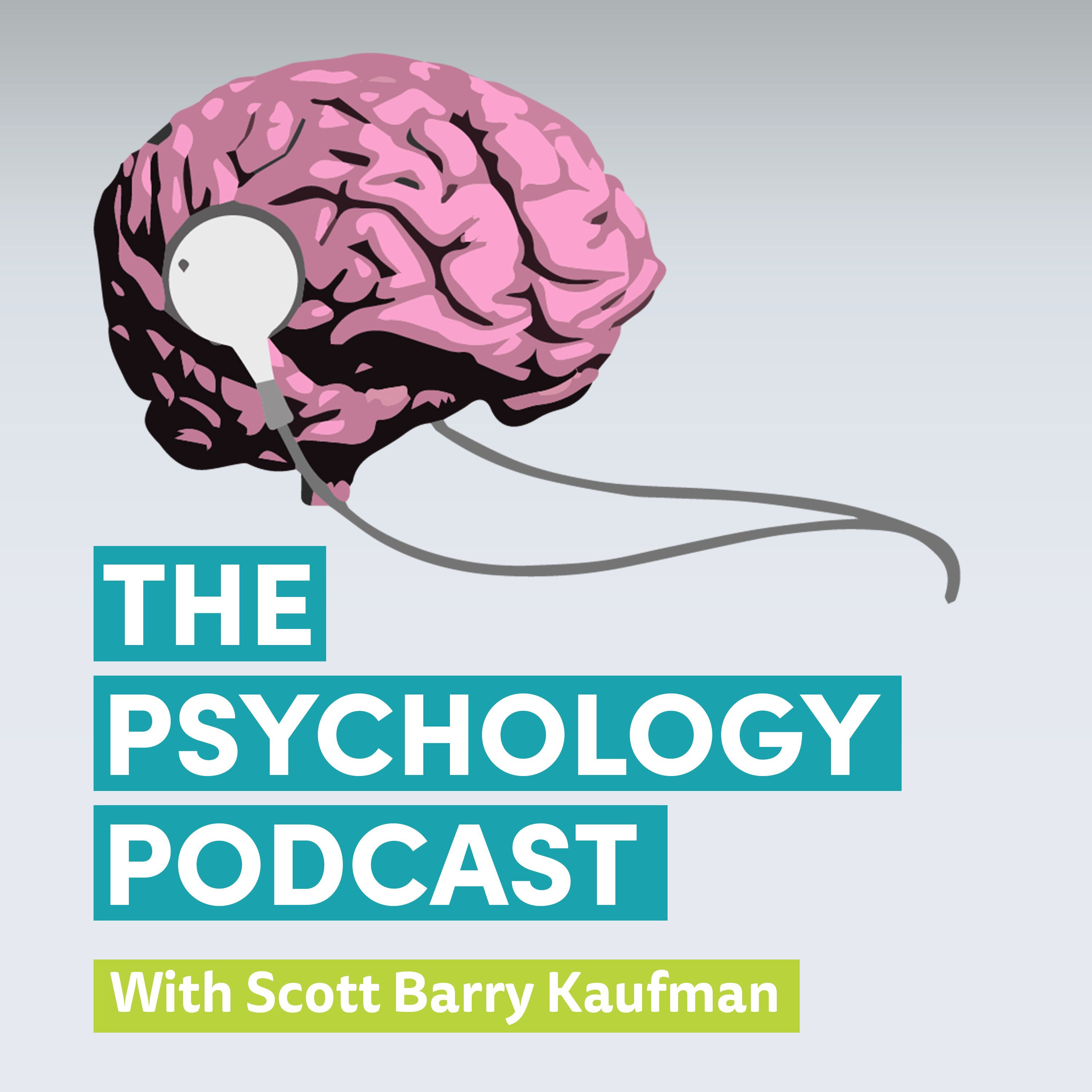
Carol Dweck || The Latest Science of Growth Mindset
Today it’s a real honor to have Carol Dweck on the podcast. Dr. Dweck is a leading researcher in the field of motivation and is the Lewis and Virginia Eaton Professor of Psychology at Stanford. Her research examines the role of mindsets in personal achievement and organizational effectiveness. Dr. Dweck has also held professorships at Columbia and Harvard Universities, has lectured to education, business, and sports groups around the world, has addressed the United Nations, has been elected to the American Academy of Arts and Sciences and the National Academy of Sciences, and has won 12 lifetime achievement awards for her research. Her best-selling book Mindset has been widely influential and has been translated into over 25 languages. In this episode we discuss: Carol’s earliest research on “incremental” vs. “entity” beliefs Carol’s dream of “bottling” the mindsets that lead people to persevere The limitations of Carol’s earlier studies The two big developments in studying growth mindset Growth mindset exercises The “Big Mama” of growth mindset studies The underwhelming effect size of educational interventions How lower-achieving students benefit more from growth mindset interventions The conditions under which growth mindset interventions don’t work The role of teacher mindset on teaching effectiveness The relationship between growth mindset and other outcomes in life How growth mindset doesn’t invalidate the existence of giftedness Why every child should be challenged Why we shouldn’t cut out gifted and talented programs How praising gifted students for effort can backfire The relationship between mindsets and IQ How having a fixed mindset can sometimes lead to increased performance Cross-cultural differences in mindsets Criticism that growth mindset claims have been overblown Carol Dweck’s dream of improving the sustainability of growth mindset interventions (Dweck’s “next big Mount Everest”) Why mindset is not a “miracle maker” What Carol Dweck is most excited about in terms of future directions Support this podcast: https://anchor.fm/the-psychology-podcast/supportSee omnystudio.com/listener for privacy information.
01:08:0612/03/2020
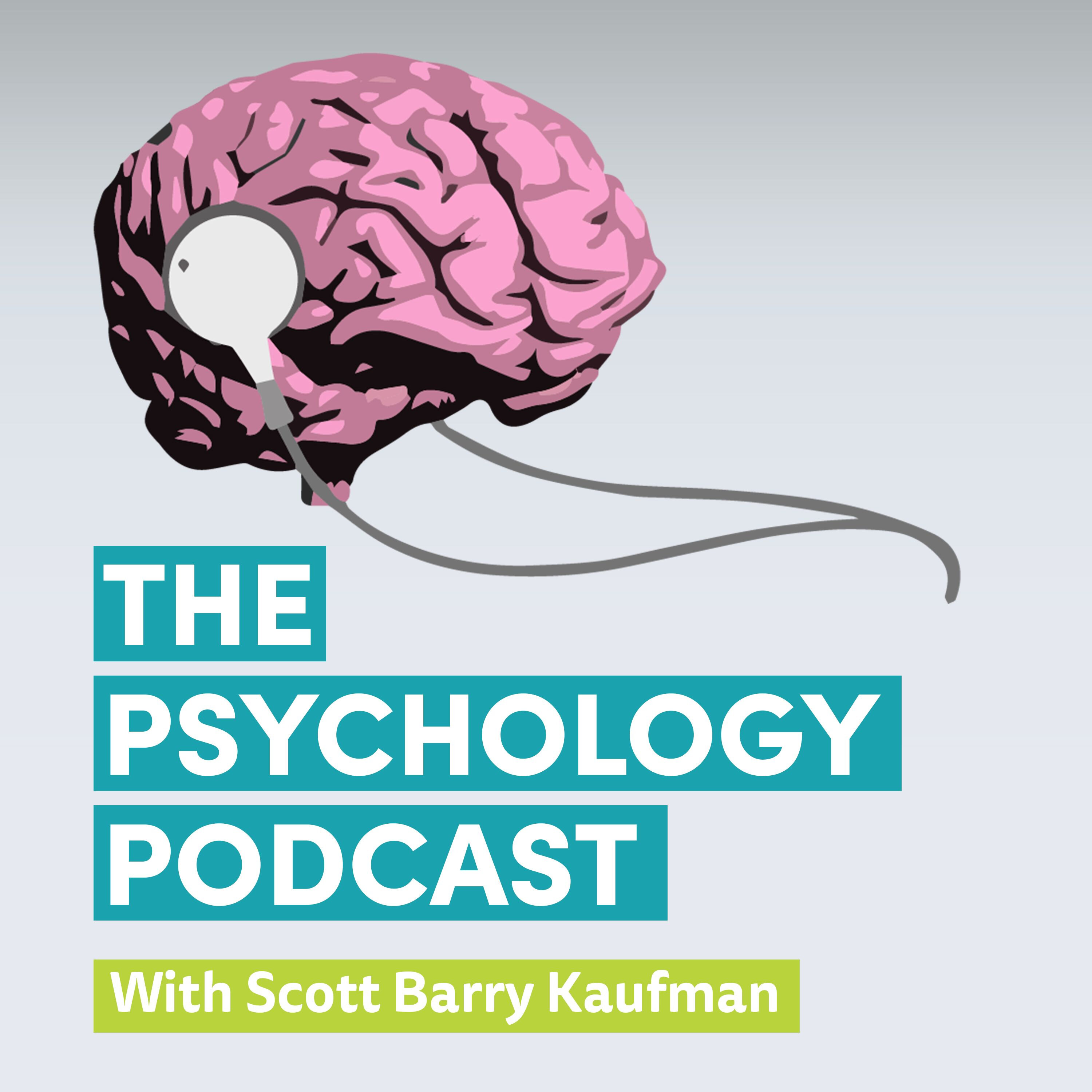
Coleman Hughes || The Humanity of Race
“There are very few people who have nothing of any value to say.” — Coleman Hughes Today it’s great to have Coleman Hughes on the podcast. Coleman is an undergraduate philosophy major at Columbia University and a columnist for Quillette magazine. His writing has been featured in the New York Times, the Wall Street Journal, City Journal, and the Spectator. In this episode we discuss: Coleman’s initial plan in life to become a trombonist Coleman’s early childhood education Coleman’s transformation of his thinking about race Coleman’s nuanced thoughts on intersectionality Why we set up a norm against racial stereotyping Is reverse-racism legitimate? How the main message of the civil rights movement is often ignored today Coleman’s humanistic perspective on race Coleman’s criticism of the woke mindset What makes sense about the woke mindset Looking at things from the perspective of police officers Understanding the causes of the underrepresentation of African Americans in gifted education programs The moral imperative to enhance cognitive development of people in the bottom of society How racial categories can mislead us How people underrate the value of local programs and community to solve problems of racism Why policy shouldn’t look at racial disparities The important distinction between culture and race Why focusing on racial disparities (assuming that racial disparities are a proxy for well-being) is a mistake Coleman’s vision for the good society Support this podcast: https://anchor.fm/the-psychology-podcast/supportSee omnystudio.com/listener for privacy information.
01:07:4005/03/2020
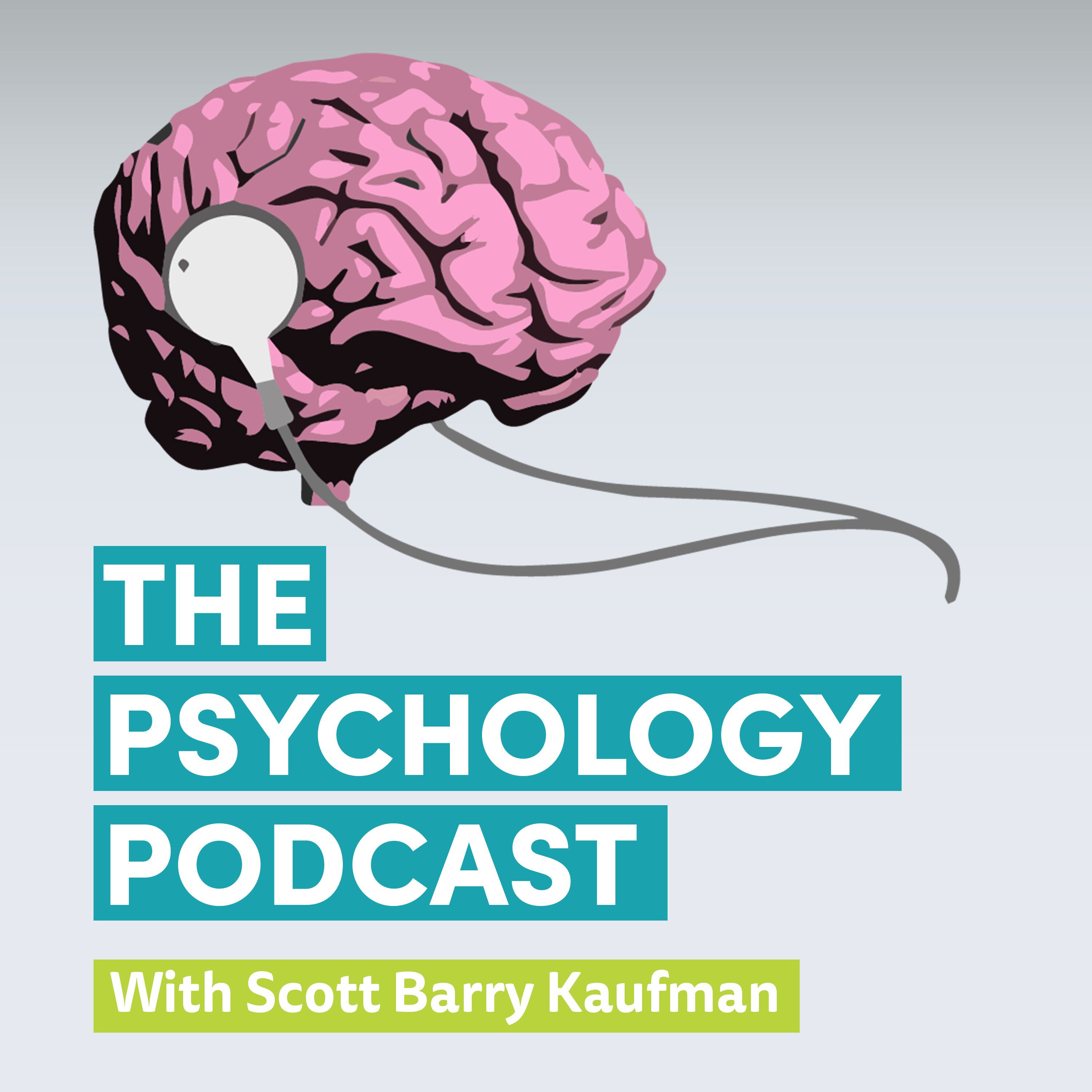
Nir Eyal || How to Be Indistractable
Today it’s really great to have Nir Eyal on the podcast. Nir is formerly a Lecturer in Marketing at Stanford’s Graduate School of Business and also taught at the Hasso Plattner Institute of Design. His first book, Hooked: How to Build Habit-Forming Products, was an international bestseller. His current book, Indistractable: How to Control Your Attention and Choose Your Life, reveals the Achilles’ heel of distraction and provides a guidebook for getting the best of technology without letting it get the best of us. Nir blogs at: NirAndFar.com In this episode we discuss: The one superpower that Nir would want The root cause of distraction What really motivates us How distraction starts from within How time management is pain management What is the role of boredom in distractibility? How to raise indistractible kids How to remove the external trigger of kids The critical question that people should ask How can you prevent distraction with pacts? How we can use precommitments to keep ourselves focused How people overuse of the word “addiction” The stigmatization of ADHD Treating a kid’s use of technology the same way we think of a swimming pool How children are “hypocrisy detection devices” The importance of setting a good example for children Self-determination theory and the rise of cell phone use Can too much concentration, and too little daydreaming, be a bad thing? Support this podcast: https://anchor.fm/the-psychology-podcast/supportSee omnystudio.com/listener for privacy information.
53:1227/02/2020
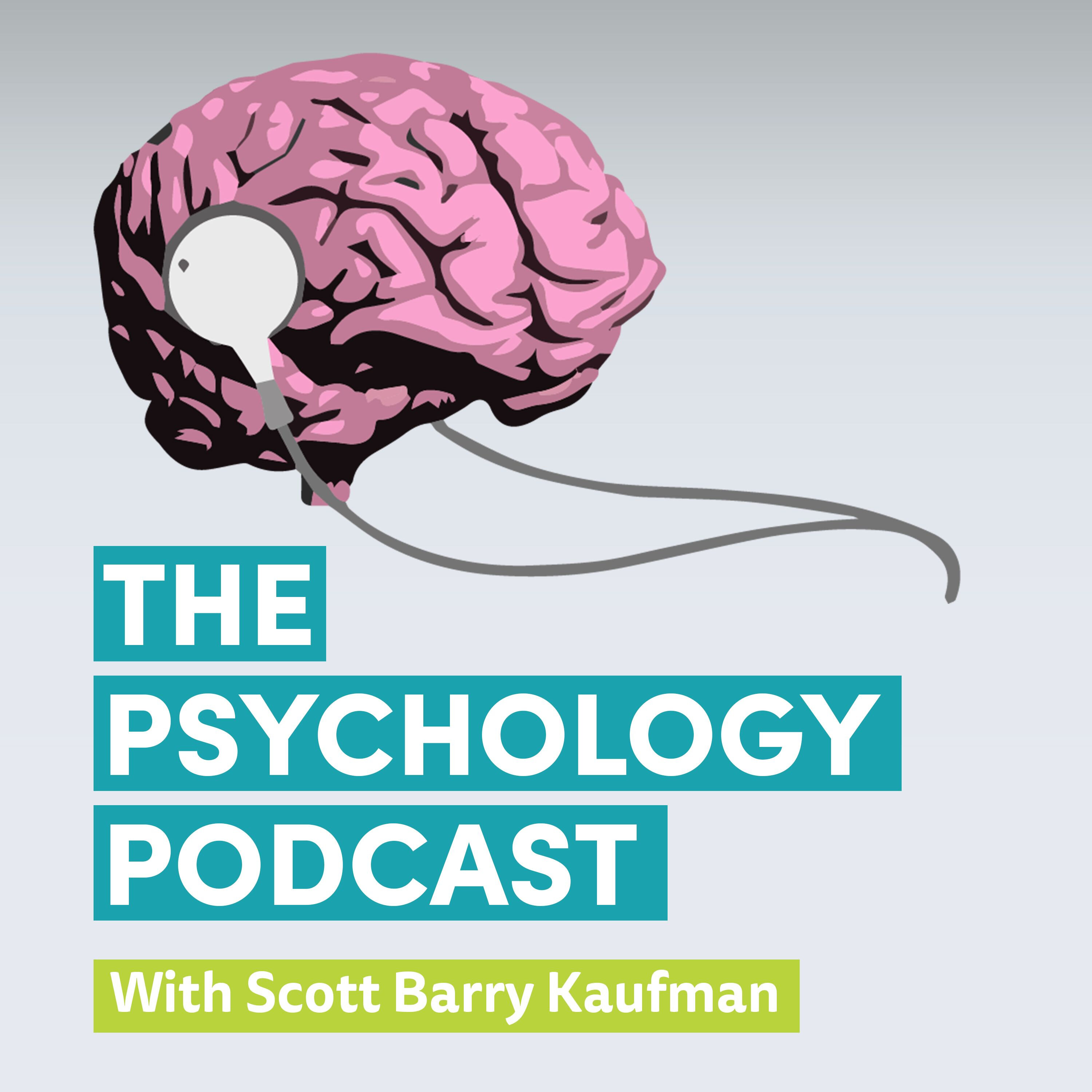
Lori Gottlieb || Maybe You Should Talk to Someone
Today we’re excited to have Lori Gottlieb on the podcast. Gottlieb is a psychotherapist and New York Times bestselling author of Maybe You Should Talk to Someone, which is being adapted as a television series with Eva Longoria. In addition to her clinical practice, she writes The Atlantic’s weekly “Dear Therapist” advice column and is the co-host of iHeart’s upcoming “Dear Therapists” podcast, produced by Katie Couric. She is also a TED speaker, a member of the Advisory Council for Bring Change to Mind, and advisor to the Aspen Institute. She is a sought-after expert in media such as The Today Show, Good Morning America, The CBS Early Show, CNN, and NPR’s “Fresh Air.” Learn more at LoriGottlieb.com or by following her @LoriGottlieb1 on Twitter. In this episode we discuss: The fundamental themes of human existence Irvin Yalom’s influence on Lori Gottlieb Why we feel isolated in our experiences The loneliness crisis on college campuses How the internet helps us numb How to know when social media has become an addiction Why happiness as a goal is a disaster SBK analyzes Lori Gottlieb Why we are often scared to do things that excite us Why there is no “hierarchy of pain” The hierarchy of pain and the social justice movement Why is it so hard for us to change when we know what to do? Why we don’t let ourselves be happy The importance of self-compassion The most important factor in the success of therapy What makes for a boring patient? Why feelings sometimes don’t care about facts Common myths of therapy “Part of us wants something and there’s another part of us that goes against the thing we want” Why “our feelings need air” How numbness is a state of being overwhelmed by too many feelings The importance of seeing your own agency and the choices you have Support this podcast: https://anchor.fm/the-psychology-podcast/supportSee omnystudio.com/listener for privacy information.
01:02:3413/02/2020
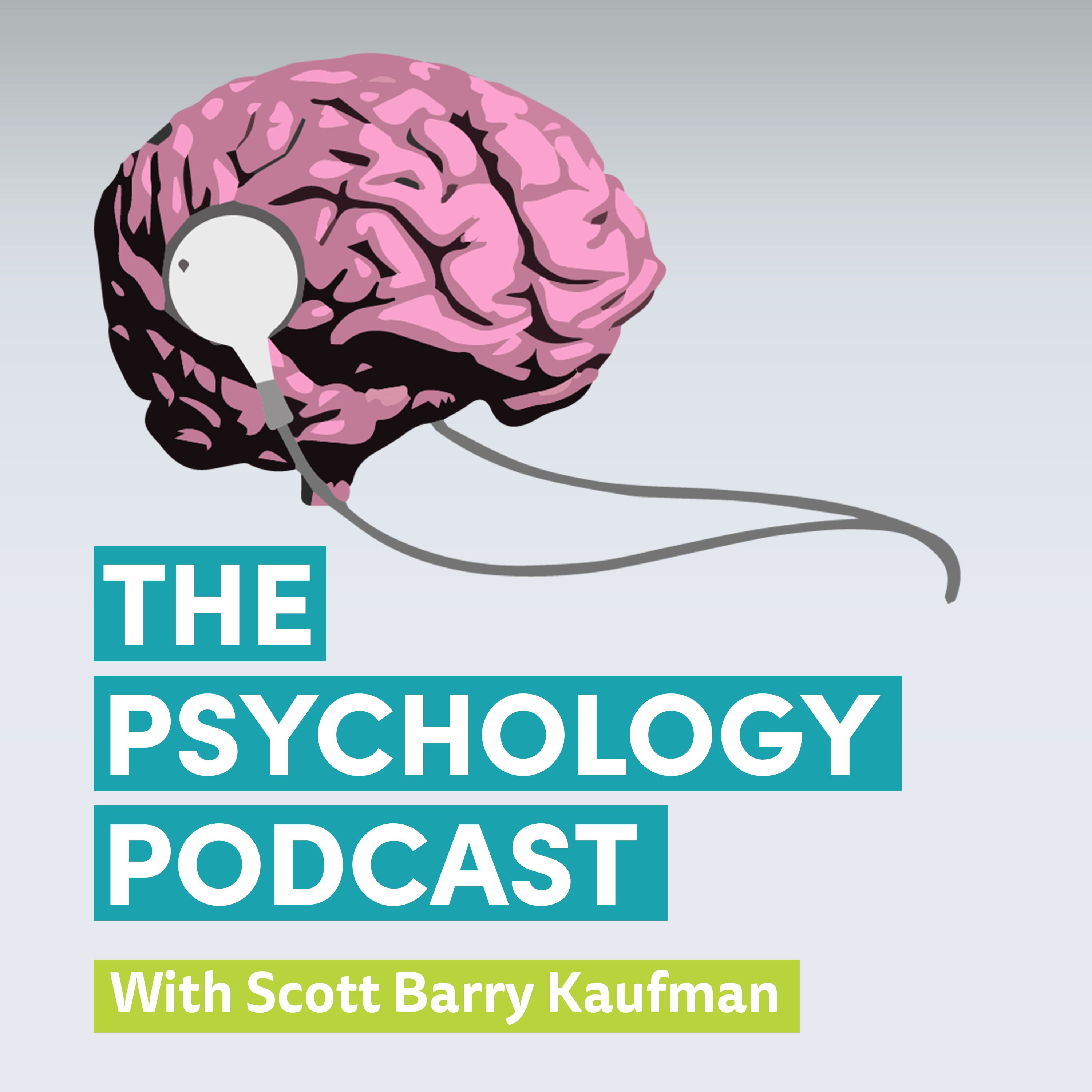
Jonathan Mooney || Normal Sucks
“The only normal people are the people you don’t know very well.” — Jonathan Mooney Today we have Jonathan Mooney on the podcast. Jonathan is a dyslexic writer and speaker who did not learn to read until 12 years old. He faced a number of low expectations growing up— was told he would flip burgers, be a high school drop out and end up in jail. Needless to say these prophecies didn’t come to pass. Today, he speaks across the nation about neurological and physical diversity, inspiring those who live with differences and advocating for change. Mooney’s work has been featured in outlets such as The New York Times, The Los Angeles Times, HBO, NPR, and ABC News, and his books include The Short Bus, Learning Outside the Lines, and most recently, Normal Sucks: How to Live, Learn, and Thrive Outside the Lines. In this episode we discuss: What is normal? How the creation of special ed was originally an act of inclusion The unintended complications of creating a special education program Jonathan’s story growing up in special ed The twice-exceptional (2e) movement How giftedness comes with a “complicated brew” of assets and challenges The importance of recognizing the 2e within ourselves and sharing that with the world The importance of not hiding the things that make us different, but celebrating those things How Jonathan once took on many personas to hide his differences How the average got conflated with the impossible ideal in society The value judgement that is placed on IQ from a cultural perspective Going from “How smart are you?” to “How are you smart”? Jonathan feeling deficient because he was different How Jonathan went on a journey driving a school bus across the United States and listened to people with atypical brains and bodies The value of human fallibility The Eye to Eye mentoring program How the private sector corporate diversity policies can make difference by including atypical brains and bodies as part of diversity initiatives Support this podcast: https://anchor.fm/the-psychology-podcast/supportSee omnystudio.com/listener for privacy information.
51:0030/01/2020
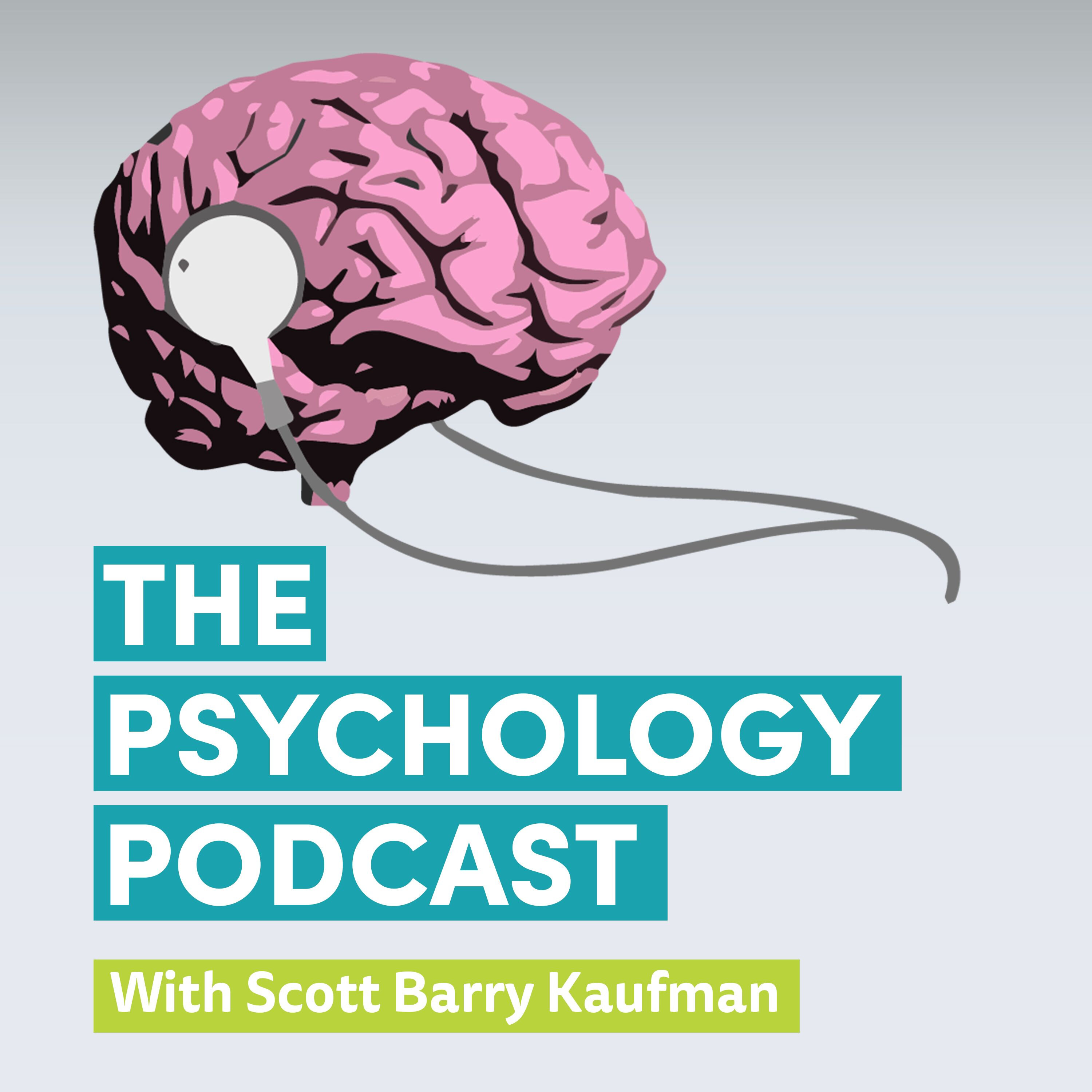
Paul Bloom || The Joy of Suffering and the Downside of Empathy
Today it's great to have Paul Bloom on the podcast. Dr. Bloom is the Brooks and Suzanne Ragen Professor of Psychology and Cognitive Science at Yale University. His research explores how children and adults understand the physical and social world, with special focus on morality, religion, fiction, and art. He is past-president of the Society for Philosophy and Psychology, and co-editor of Behavioral and Brain Sciences, one of the major journals in the field. Dr. Bloom is also author or editor of seven books, including Against Empathy: The Case for Rational Compassion In this wide-ranging and provocative episode we discuss: Paul's graduate research with Steven Pinker Is language the result of biological evolution or cultural evolution? What "hardwired" really means Why innate mechanisms require environmental input The necessity of bias Some potential downsides of empathy The case for rational compassion Cognitive empathy vs. affective empathy Did Hitler have the capacity for empathy? The joy of suffering Why do we choose to suffer? The fundamental human need for exploration The human need to overcome challenges Would some people be content watching Netflix and smoking pot all day? The relationship between income and happiness The importance of spending money well The psychology of expectation and pleasure If someone offer you more money, should you take it? Relief vs. pleasure Does enjoying something depend on how much we think we will enjoy something? Art and authenticity Art and value judgements Would Tarzan believe in God? Are babies basically good? Why religion is so pervasive Are babies moral? How a powerful moral sense is responsible for an extraordinary amount of evil in the world Is moral grandstanding always bad? Why not everything is virtue signaling Support this podcast: https://anchor.fm/the-psychology-podcast/supportSee omnystudio.com/listener for privacy information.
01:05:0416/01/2020
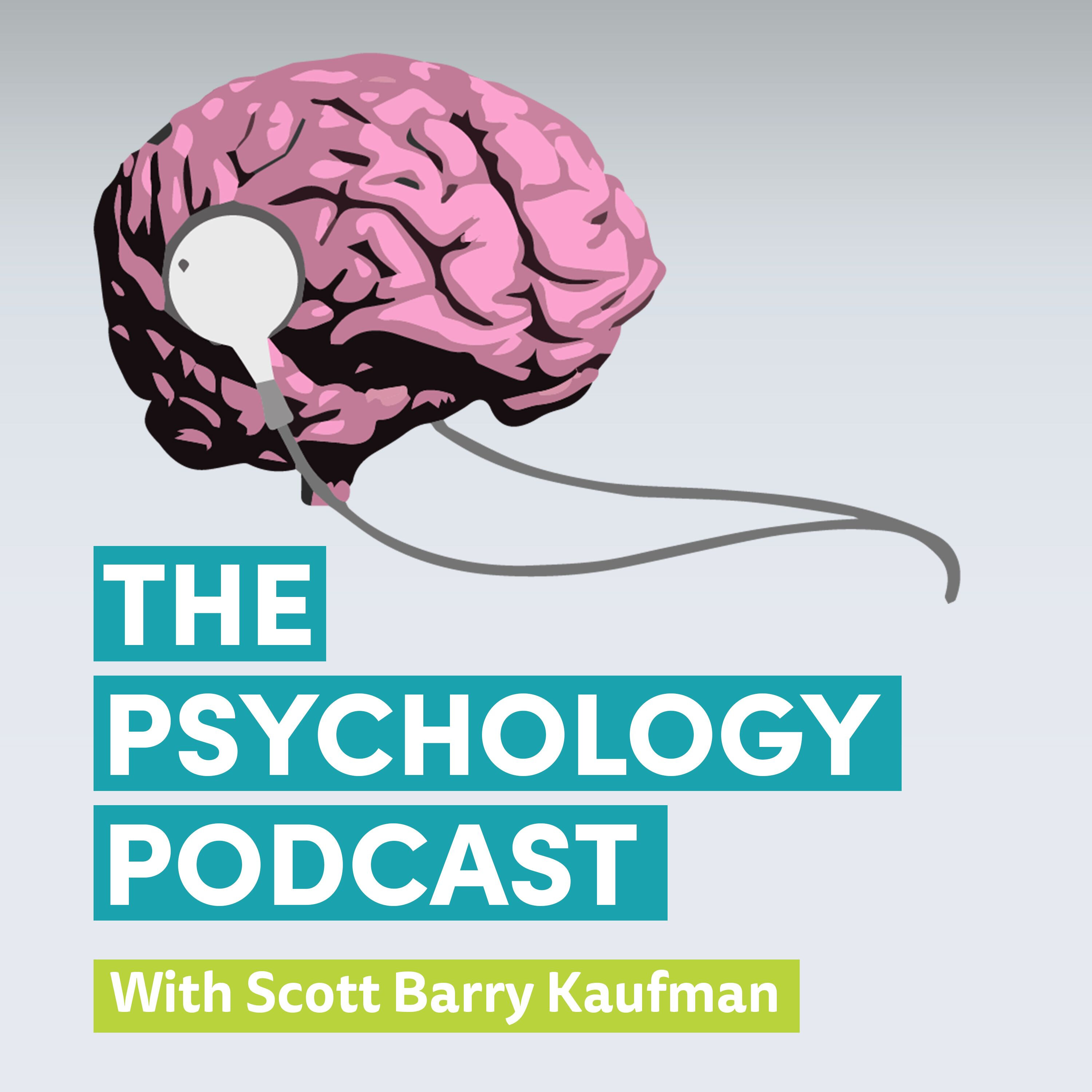
Cory Muscara || Stop Missing Your Life
Support this podcast: https://anchor.fm/the-psychology-podcast/supportToday it’s great to have Cory Muscara on the podcast. Cory is an international speaker and teacher on the topics of presence and well-being. He believes that when people are deeply fulfilled, they are a better force in the world for other beings, the environment, and their communities. For several years he taught mindfulness-based leadership at Columbia University and currently serves as an assistant instructor of positive psychology at the University of Pennsylvania. In 2012, Cory spent 6 months in silence living as a monk in Burma, meditating 14+ hours per day, and now aims to bring these teachings to people in a practical and usable way, presenting to schools, organizations and healthcare systems, as well as through workshops and retreats for the general public. Named by Dr. Oz as one of the nation’s leading experts on mindfulness, his meditations have now been heard more than 10 million times in over 100 countries. Cory is host of the popular daily podcast, Practicing Human, and the author of <em>Stop Missing Your Life: How to Be Deeply Present in an Un-Present World.</em> <p>In this episode we discuss:</p> <ul> <li>Cory’s transformation from frat boy to monk</li> <li>Can monks be self-actualizing?</li> <li>The importance of not being enslaved by certain parts of you</li> <li>How to overcame pain through mindfulness</li> <li>The emotional body vs. the sensation body</li> <li>The process of detaching sensations from the labels we put on them</li> <li>Equanimity and allowing life to happen</li> <li>How equanimity is more about our internal experience than our external experience</li> <li>The “pain box”</li> <li>How to soften the “pain wall”</li> <li>Dispelling the myth of the “real you”</li> <li>Barriers to real connection</li> <li>What it means to be fully seen and accepted</li> <li>The importance of radical acceptance</li> <li>How the more parts of you that are brought in and accepted the more you feel as though the wholeness of you is accepted and seen</li> <li>The "scrollercoaster" meditation</li> <li>How we can take control of technology and take back our lives</li> </ul> <p> </p> See omnystudio.com/listener for privacy information.
51:1502/01/2020
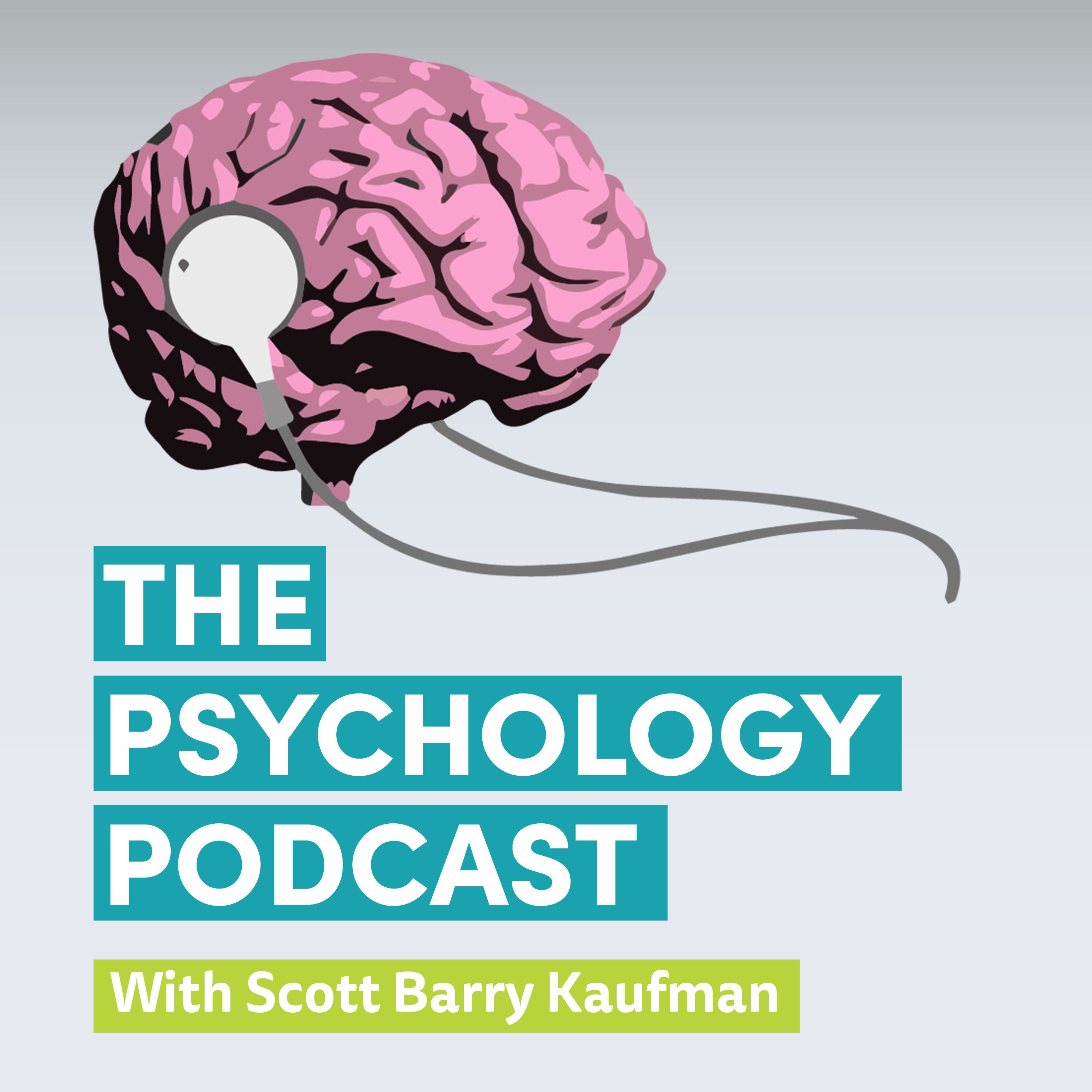
Marc Brackett || Become an Emotion Scientist
“Emotion skills are the key to unlocking the potential inside each one of us. And in the process of developing those skills, we each, heart by heart, mind by mind, create a culture and society unlike anything we’ve experienced thus far— and very much like the one we might dare to imagine.” -- Marc Brackett Today it's great to have Marc Brackett on the podcast. Dr. Brackett is founding director of the Yale Center for Emotional Intelligence and professor in the Child Study Center, Yale School of Medicine at Yale University. His research focuses on the role of emotions and emotional intelligence in learning, decision making, creativity, relationships, health, and performance. Marc is the lead developer of RULER, an evidence-based, systemic approach to SEL that has been adopted by over 2,000 preschool to high schools across the United States and in other countries. He has published 125 scholarly articles and received numerous awards, including the Joseph E. Zins award for his research on social and emotional learning. He also is on the board of directors for the Collaborative for Academic, Social, and Emotional Learning (CASEL). Marc consults regularly with corporations like Facebook, Microsoft, and Google on integrating emotional intelligence principles into employee training and product design and is co-founder of Oji Life Lab, a digital emotional intelligence learning system for businesses. His research has been featured in popular media outlets such as the New York Times, USA Today, Good Morning America, and NPR. He is the author of Permission to Feel: Unlocking the Power of Emotions to Help our Kids, Ourselves, and our Society Thrive, published by Celadon Books, a division of Macmillan, which has been translated into 15 languages. In this wide-ranging episode we discus Support this podcast: https://anchor.fm/the-psychology-podcast/supportSee omnystudio.com/listener for privacy information.
43:1519/12/2019

Julia Shaw || Humanizing Evil
“I firmly believe there is no person, no group, no behavior, no thing that is objectively evil. Perhaps evil only really exists in our fears.” -- Julia Shaw Today it’s great to have Dr. Julia Shaw on the podcast. Dr. Shaw is a psychological scientist at UCL. She is best known for her work in the areas of memory and criminal psychology. In 2017 Dr. Shaw co-founded the memory science and artificial intelligence start-up Spot. Spot helps employees report workplace harassment and discrimination, and empowers organizations to build a more inclusive and respectful work environment. In 2016 she published her bestselling debut book "The Memory Illusion", which has appeared in 20 languages and in 2019 she published her second international bestseller "Evil: The Science Behind Humanity's Dark Side". Note: This episode goes down a lot of taboo alleys. The dark side of human nature is a fascinating topic, but there may be some issues that you'd rather not hear about. Please review the list of topics before listening to this episode. In this episode we discuss: How Julia got into criminal psychology How we all do “reality crafting” The depths of human hypocrisy Why we don’t always act in accord with our own morality Julia Shaw’s criticism of the label “evil” The neuroscience of “evil” and Hitler’s brain Your brain on porn How kink is stigmatized in our society Can you be a feminist and engage in BDSM? The “deviant sexual interests” scale The prevalence of rape fantasies Pedophiles vs. ephebophiles Why “curiosity shaming” limits discussion and understanding The science of beastiality and what makes one animal sexier than another animal Why we shame vegans Rape culture and how systems fail and lead to harm What we can do to reduce sexual violence in society The bright side of your dark side How we can use the dark side to be a hero (the heroic imagination) Support this podcast: https://anchor.fm/the-psychology-podcast/supportSee omnystudio.com/listener for privacy information.
01:13:0005/12/2019

Rex Jung || The Neuroscience (and Neuroplasticity) of Intelligence, Creativity, and Genius
Today it’s great to have Dr. Rex Jung on the podcast. Dr. Jung is an assistant professor of neurosurgery at the University of New Mexico, and a clinical neuropsychologist in private practice in Albuquerque, New Mexico. A graduate of the University of New Mexico, he has practiced neuropsychology in Albuquerque since 2002. His clinical work now centers around intraoperative testing of patients undergoing awake craniotomy to remove tumors within eloquent brain tissue – work with particular relevance to the study of individual differences. He has contributed to over 100 research articles across a wide range of disciplines, involving both clinical and normal populations, designed to assess brain-behavior relationships. He is the Editor of the Cambridge Handbook of the Neuroscience of Creativity. His work has been featured on CNN, BBC, NOVA, The New York Times, The Atlantic, and National Geographic. In this episode we discuss: Rex’s earlier work on the neuroscience of intelligence The distributed brain model of intelligence Rex’s investigation of Scott’s brain How the brain can compensate for disability How our intelligence can change over time Limitations of IQ tests for measuring intellectual potential The limits of neuroplasticity The genetics of intelligence The creative brain How the neuroscience of creativity is sometimes the inverse of the neuroscience of intelligence The “default network” of mental simulation The human capacity to “simulate or try out ideas before you buy them” The beautiful architecture of the brain The neuroscience of genius Rex’s work on awake craniometries (neurological testing while a patient is awake and a tumor is being removed) Support this podcast: https://anchor.fm/the-psychology-podcast/supportSee omnystudio.com/listener for privacy information.
49:5621/11/2019
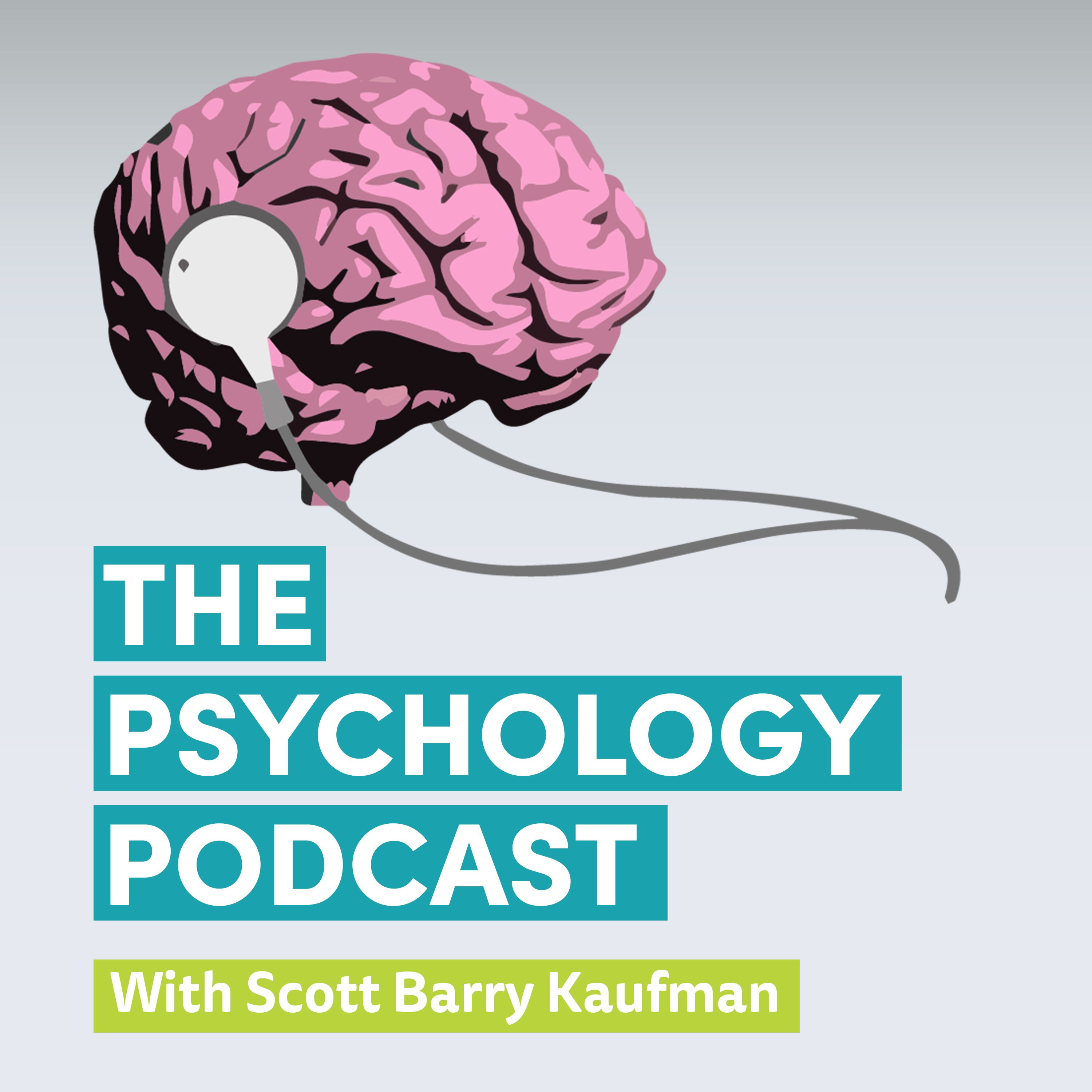
Steven Hayes || Liberate Your Mind
Today it’s great to have Dr. Steven Hayes on the podcast. Dr. Hayes is a professor of psychology at the University of Nevada, Reno. The author of forty-three books and more than six hundred scientific articles, he has served as president of the Association for Behavioral and Cognitive Therapy and the Association for Contextual Behavioral Science, and is one of the most cited psychologists in the world. Dr. Hayes initiated the development of Acceptance and Commitment Therapy (ACT) and of Relational Frame Theory (RFT), the approach to cognition on which ACT is based. His research has been cited widely by major media, including: Time magazine, The New Yorker, The New York Times, Men's Health, Self, The Wall Street Journal, Psychology Today, O, The Oprah Magazine, and Salon.com. In this episode we discuss: Steven Haye’s journey to studying the science of liberation The lessons you can learn from your own pain and suffering How you can apply psychology to human prosperity Some limitations of the CBT approach (“CBT gone bad”) How we all have a “dictator within” Scott and Steven roleplay an ACT session How to apply ACT principles to dieting How Steven defines values The definition and importance of “psychological flexibility” How to get out of the “anxiety trap” How to pivot to what you really want How consciousness connects us to the infinite The 6 things that get in the way of pivoting The social/environmental side of ACT “What does it gain us to give up on people?” ACT and social transformation What is love? Support this podcast: https://anchor.fm/the-psychology-podcast/supportSee omnystudio.com/listener for privacy information.
01:00:2307/11/2019
![[Rerun] Dr. Elaine Aron on The Highly Sensitive Person [Rerun] Dr. Elaine Aron on The Highly Sensitive Person](https://www.omnycontent.com/d/clips/e73c998e-6e60-432f-8610-ae210140c5b1/47e6a3a1-adc4-4e4e-9a7a-b09d01547555/9a291d6d-34a3-494c-b077-b09d0169ab72/image.jpg?t=1697493414&size=Large)
[Rerun] Dr. Elaine Aron on The Highly Sensitive Person
Dr. Elaine Aron is one of the world’s foremost experts on the highly sensitive person. She ought to be – she was its first researcher! In this episode, we cover this fascinating concept as it relates to a broad swath of psychological concepts like self-esteem, gender, love, leadership, personality, genetics and more. Roughly 20% of the population can be classified as highly sensitive, so all of us likely know someone (or are someone) with this trait. Also, Scott performs a statistical analysis live on air – it’s a first and a lot of fun! Support this podcast: https://anchor.fm/the-psychology-podcast/supportSee omnystudio.com/listener for privacy information.
01:01:1731/10/2019
![[Rerun] Helen Fisher on Why We Love, Lust, and Live with Helen Fisher [Rerun] Helen Fisher on Why We Love, Lust, and Live with Helen Fisher](https://www.omnycontent.com/d/clips/e73c998e-6e60-432f-8610-ae210140c5b1/47e6a3a1-adc4-4e4e-9a7a-b09d01547555/7462fe5f-f3c0-400c-ad05-b09d0169bc6a/image.jpg?t=1697493425&size=Large)
[Rerun] Helen Fisher on Why We Love, Lust, and Live with Helen Fisher
A leader in the psychology of human mating, and an expert on both the cultural and biological foundations of love, Helen Fisher shares science-backed information on attraction, mate selection, infidelity, the neuroscience of love and the effects of culture on our biology. There’s a wealth of interesting facts here and some surprising insight into humanity’s quest for romance. We LOVED this episode! Support this podcast: https://anchor.fm/the-psychology-podcast/supportSee omnystudio.com/listener for privacy information.
44:1424/10/2019
![[Rerun] "Spectacular Ability in a Sea of Disability”: The Psychology of Savantism with Darold Treffert [Rerun] "Spectacular Ability in a Sea of Disability”: The Psychology of Savantism with Darold Treffert](https://www.omnycontent.com/d/clips/e73c998e-6e60-432f-8610-ae210140c5b1/47e6a3a1-adc4-4e4e-9a7a-b09d01547555/aca4d2e9-20f7-4e28-8e64-b09d0169c5fe/image.jpg?t=1697493435&size=Large)
[Rerun] "Spectacular Ability in a Sea of Disability”: The Psychology of Savantism with Darold Treffert
A leading expert in the psychology of savantism for over 40 years and the scientific advisor for the film Rain Man, Darold Treffert is a wellspring of knowledge on this fascinating yet often misunderstood condition. In this episode we cover the brain anatomy of savantism, its causes and some of the incredible abilities of famous savants like Kim Peak, who memorized thousands of books verbatim (down to the page number)! We feel fortunate to have had this chance to learn so much about such an interesting topic from one of the most well respected researchers in the field. Please enjoy and tell us what you think! Support this podcast: https://anchor.fm/the-psychology-podcast/supportSee omnystudio.com/listener for privacy information.
01:09:1217/10/2019
![[Rerun] Todd Kashdan on Dancing with the Dark Side of Your Personality [Rerun] Todd Kashdan on Dancing with the Dark Side of Your Personality](https://www.omnycontent.com/d/clips/e73c998e-6e60-432f-8610-ae210140c5b1/47e6a3a1-adc4-4e4e-9a7a-b09d01547555/5fc8bb57-5204-4c97-a229-b09d0169d152/image.jpg?t=1697493444&size=Large)
[Rerun] Todd Kashdan on Dancing with the Dark Side of Your Personality
Psychologist Dr. Todd Kashdan shares some unconventional research on how we can harness “negative” psychological characteristics to live whole, successful and fulfilling lives. Topics include the dark triad, emotional experimentation, mindfulness, education, evolution and what it means to live well. Support this podcast: https://anchor.fm/the-psychology-podcast/supportSee omnystudio.com/listener for privacy information.
01:01:5310/10/2019
![[Rerun] Angela Duckworth on Grit: The Power of Passion and Perseverance [Rerun] Angela Duckworth on Grit: The Power of Passion and Perseverance](https://www.omnycontent.com/d/clips/e73c998e-6e60-432f-8610-ae210140c5b1/47e6a3a1-adc4-4e4e-9a7a-b09d01547555/ead92ca1-b564-419c-a4e2-b09d0169d7c0/image.jpg?t=1697493449&size=Large)
[Rerun] Angela Duckworth on Grit: The Power of Passion and Perseverance
Angela Duckworth researches self-control and grit, which is defined as passion and perseverance for long term goals. Her research has demonstrated that there are factors that can be more predictive of success than IQ. In this episode we cover some of her findings on grit, including academic and popular misconceptions of this work. We also discuss research on standardized testing, self-control and more. Support this podcast: https://anchor.fm/the-psychology-podcast/supportSee omnystudio.com/listener for privacy information.
49:2803/10/2019
![[Rerun] Jordan Peterson on Wonder, Creativity, and the Personality of Political Correctness [Rerun] Jordan Peterson on Wonder, Creativity, and the Personality of Political Correctness](https://www.omnycontent.com/d/clips/e73c998e-6e60-432f-8610-ae210140c5b1/47e6a3a1-adc4-4e4e-9a7a-b09d01547555/3b6d2daf-9d39-4f6a-87c9-b09d0169e821/image.jpg?t=1697493463&size=Large)
[Rerun] Jordan Peterson on Wonder, Creativity, and the Personality of Political Correctness
Today we have Dr. Jordan Peterson on the podcast. Dr. Peterson has taught mythology to lawyers, doctors and business people, consulted for the UN Secretary General, helped his clinical clients manage depression, obsessive-compulsive disorder, anxiety, and schizophrenia, served as an adviser to senior partners of major Canadian law firms, and lectured extensively in North America and Europe. With his students and colleagues at Harvard and the University of Toronto, Dr. Peterson has published over a hundred scientific papers. Dr. Peterson is also author of two books: Maps of Meaning: The Architecture of Belief and 12 Rules for Life: An Antidote to Chaos, which is a #1 bestseller. In this wide-ranging conversation we discuss the following topics: – Why “learned irrelevance” is incredibly important – Why creativity requires keeping a childlike wonder – How hallucinogens clear the “doors of perception” – The “shared vulnerability” model of the creativity-mental illness connection – The neuroscience of openness to experience – The personality of personal correctness – The practical implications of gender differences – The function of the state in helping to make sure there is equality of individual expression – How agreeableness and conscientiousness orient us differently in the social world – The difference between pathological altruism and genuine compassion – The link between pathological altruism and vulnerable narcissism – The difference between responsibility and culpability – How to help people take responsibility and make their lives better Support this podcast: https://anchor.fm/the-psychology-podcast/supportSee omnystudio.com/listener for privacy information.
39:0026/09/2019
![[Rerun] Tim Ferriss on Accelerated Learning, Peak Performance and Living the Good Life [Rerun] Tim Ferriss on Accelerated Learning, Peak Performance and Living the Good Life](https://www.omnycontent.com/d/clips/e73c998e-6e60-432f-8610-ae210140c5b1/47e6a3a1-adc4-4e4e-9a7a-b09d01547555/46f9c025-d536-48ff-aacb-b09d016a0f08/image.jpg?t=1697493495&size=Large)
[Rerun] Tim Ferriss on Accelerated Learning, Peak Performance and Living the Good Life
Three time bestselling author and human guinea pig Tim Ferriss discusses how to become top 5% in the world with a new skill in just 6-12 months. Scott and Tim debunk the 10,000 hour rule, discuss general principles for accelerated skill acquisition, consider what it means to live the good life and take a sneak peak at Tim’s new show The Tim Ferris Experiment. Support this podcast: https://anchor.fm/the-psychology-podcast/supportSee omnystudio.com/listener for privacy information.
33:4019/09/2019
![[Rerun] Kristin Neff on The Healing Power of Self-Compassion [Rerun] Kristin Neff on The Healing Power of Self-Compassion](https://www.omnycontent.com/d/clips/e73c998e-6e60-432f-8610-ae210140c5b1/47e6a3a1-adc4-4e4e-9a7a-b09d01547555/e64713e0-f726-40c7-84df-b09d016a4725/image.jpg?t=1697493544&size=Large)
[Rerun] Kristin Neff on The Healing Power of Self-Compassion
A pioneering researcher in the psychology of self-compassion, Dr. Kristin Neff provides deep insight into the incredible healing power of being your own ally. In this episode, we cover some immediately useful ways to practice self-compassion and gain its many benefits. Self-compassion has been linked to reductions in anxiety, physical pain, depression and the stress hormone cortisol. It’s been shown to increase motivation, improve a mastery mindset, and enhance well-being. There’s a great deal of levity in this episode as we discuss how we can benefit from learning to care for ourselves the way we care for others. Support this podcast: https://anchor.fm/the-psychology-podcast/supportSee omnystudio.com/listener for privacy information.
34:2312/09/2019
![[Rerun] Robert Greene on The Laws of Human Nature [Rerun] Robert Greene on The Laws of Human Nature](https://www.omnycontent.com/d/clips/e73c998e-6e60-432f-8610-ae210140c5b1/47e6a3a1-adc4-4e4e-9a7a-b09d01547555/6ed8ef87-c170-40a6-a063-b09d016a4a2a/image.jpg?t=1697493548&size=Large)
[Rerun] Robert Greene on The Laws of Human Nature
Today we have Robert Greene on the podcast. Robert is the #1 New York Times bestselling author of The 48 Laws of Power, The 33 Strategies of War, The Art of Seduction, and Mastery, and is an internationally renowned expert on power strategies. His latest book is The Laws of Human Nature. In this episode we discuss: What is human nature? How to transform self-love into empathy The deep narcissist vs. the the heathy narcissist Abraham Maslow’s encounter with Alfred Adler How to confront your dark side Returning to your more authentic self How people who are one-sided are concealing the opposite trait The importance of not taking yourself too seriously How to see through people’s masks The importance of assessing people’s actions over time Why toxic types have a peculiar sort of charm Healthy people-pleasers vs. toxic people-pleasers How to get in deep contact with your purpose The importance of becoming aware of the “spirit of the generation” How to confront your mortality and open your mind to the sublime Support this podcast: https://anchor.fm/the-psychology-podcast/supportSee omnystudio.com/listener for privacy information.
01:12:3505/09/2019
![[Rerun] Brené Brown on Creativity, Courageous Vulnerability and Wholehearted Living [Rerun] Brené Brown on Creativity, Courageous Vulnerability and Wholehearted Living](https://www.omnycontent.com/d/clips/e73c998e-6e60-432f-8610-ae210140c5b1/47e6a3a1-adc4-4e4e-9a7a-b09d01547555/9ebfa1f7-e694-4d88-b615-b09d016a59aa/image.jpg?t=1697493560&size=Large)
[Rerun] Brené Brown on Creativity, Courageous Vulnerability and Wholehearted Living
We are especially grateful (and giddy) to be sharing this episode with our listeners! Brene Brown’s work really gels with our core interests here on The Psychology Podcast, and the resulting conversation contains some enthusiastic and empirically informed banter that is sure to inform and delight. We geek out over some counter-intuitive findings, like how incredibly compassionate people have a tendency to set the most boundaries and say “no.” We discuss the power of being vulnerable and how the data suggests that it is one of the best predictors of courage. We chat about how trying to be cool is the enemy of truly being cool, how we can enrich future generation’s learning with wholehearted living, and how ignoring our creativity defies our essential nature. It’s ~45 minutes of two experts in the field sharing data, and themselves, and it’s one of our favorite episodes yet. Support this podcast: https://anchor.fm/the-psychology-podcast/supportSee omnystudio.com/listener for privacy information.
36:2529/08/2019
![[Rerun] Susan Cain on The Quiet Revolution: Unlocking the Power of Introverts [Rerun] Susan Cain on The Quiet Revolution: Unlocking the Power of Introverts](https://www.omnycontent.com/d/clips/e73c998e-6e60-432f-8610-ae210140c5b1/47e6a3a1-adc4-4e4e-9a7a-b09d01547555/75b02aad-d8aa-455a-abe6-b09d016a6f8b/image.jpg?t=1697493579&size=Large)
[Rerun] Susan Cain on The Quiet Revolution: Unlocking the Power of Introverts
Best-selling author Susan Cain shares her personal philosophy and the research that started a movement to empower introverts! For this episode, we wanted to share ourselves – We discuss our values, epiphanies and perspectives on the good life. We also shed light on introversion across a range of topics, including vocations, testing and the differences between scientific and cultural conceptualizations of introversion. Support this podcast: https://anchor.fm/the-psychology-podcast/supportSee omnystudio.com/listener for privacy information.
47:5922/08/2019

David Vago || Mind the Mindfulness Hype
Today it’s a delight to have David Vago on the podcast. Dr. Vago is Research Director of the Osher Center for Integrative Medicine at Vanderbilt University Medical Center. He also maintains an appointment as a research associate in the Functional Neuroimaging Laboratory at Harvard Medical School. David aims to clarify adaptive mind-brain-body interactions and their therapeutic relevance in health-care settings. In this context, David has been specifically focusing on the study of mindfulness-based interventions in clinical settings, and the basic cognitive and neuroscientific mechanisms by which mindfulness-based practice function. In this episode we discuss: What is contemplative science? History of the idea of “contemplation” Including intuition under the umbrella of contemplative practice The aim of mindfulness Pop writers on mindfulness vs. scientists of mindfulness What do we know after 25 years of mindfulness research? The link between mindfulness and how we cope with pain The link between mindfulness and reducing anxiety The link between mindfulness and improving depression How there are a lot of crap studies out there on mindfulness What are the potential adverse effects of mindfulness? Why it’s difficult to look at the link between mindfulness and cognitive outcomes Mindfulness and its impact on impulse control The impact of mindfulness on attention The need for better measures of outcomes in mindfulness research The link between mindfulness and creativity The false narrative about mindfulness and mind wandering (and the default mode network) The relationship between mindfulness and wisdom The main challenges of investigating mindfulness through neuroscience Why mindfulness is not the end all and be all The usefulness of taking an evidence-based approach to looking at the benefits of mindfulness Support this podcast: https://anchor.fm/the-psychology-podcast/supportSee omnystudio.com/listener for privacy information.
01:04:2415/08/2019
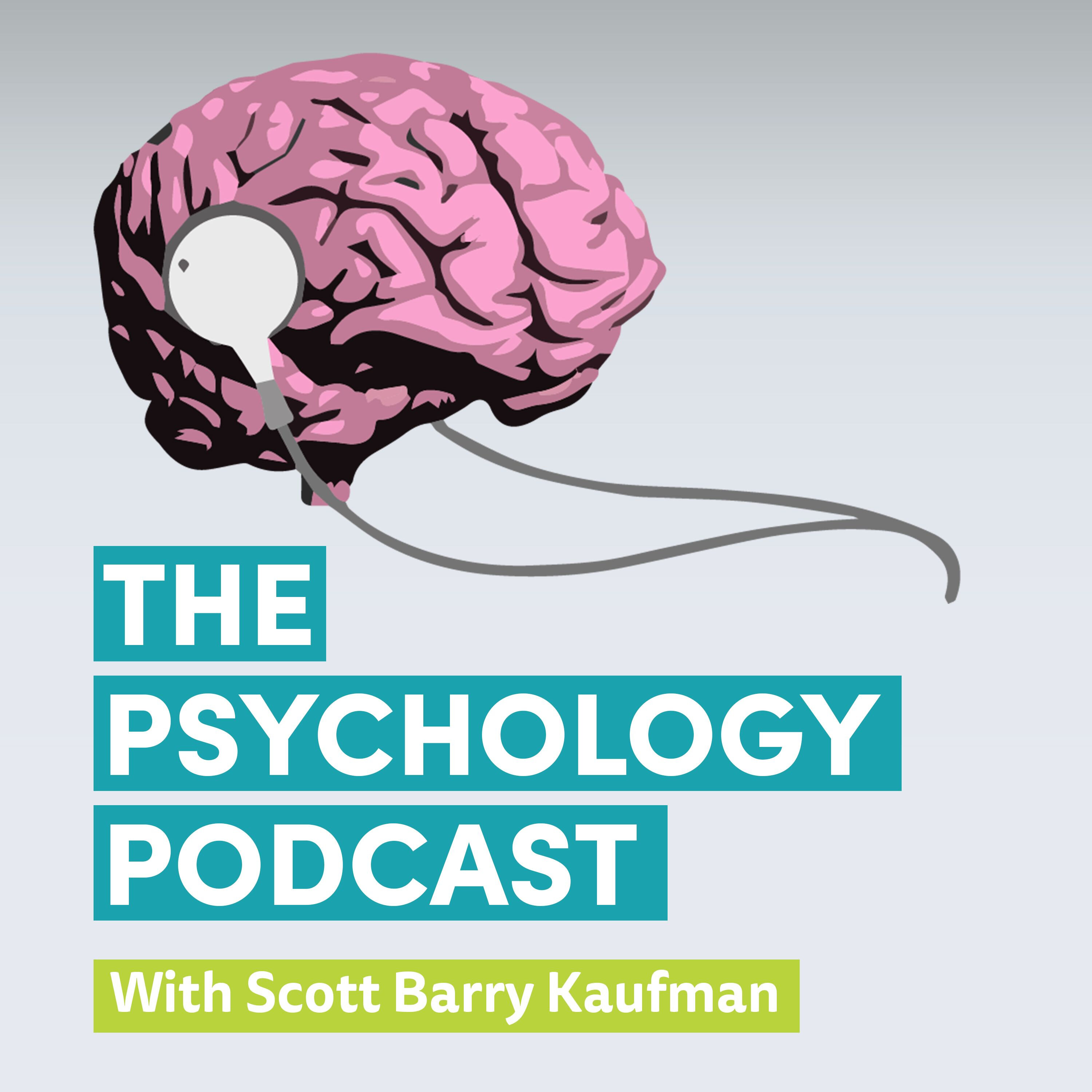
Christian Miller || How Good Are We, Really?
Today it’s great to have Christian Miller on the podcast. Dr. Miller is A.C. Reid Professor of Philosophy at Wake Forest University and Director of the Character Project, funded by the John Templeton Foundation and Templeton World Charity Foundation. He is the author of over 75 papers as well as the author of Moral Character: An Empirical Theory, Character and Moral Psychology, and most recently, The Character Gap: How Good Are We? In this episode we discuss: The main aims of the Character Project Christian’s attempt to integrate positive psychology research with philosophy Replication of the famous Milgram experiment Fairness norms among infants Can we draw boundaries around the notion of “moral character”? What factors predict whether people help? How we’re a mixed bag between the poles of compassion and callousness What Christian’s research has discovered about people’s tendency toward helping, hurting, lying and cheating Can we make humans better? How SBK and Aristotle are on the same page Support this podcast: https://anchor.fm/the-psychology-podcast/supportSee omnystudio.com/listener for privacy information.
45:5708/08/2019

Brian Nosek || Implicit Bias and Open Science
oday with have Brian Nosek on the podcast. Nosek is co-Founder and Executive Director of the Center for Open Science (http://cos.io/) that operates the Open Science Framework (http://osf.io/). The Center for Open Science is enabling open and reproducible research practices worldwide. Brian is also a Professor in the Department of Psychology at the University of Virginia. He received his Ph.D. from Yale University in 2002. He co-founded Project Implicit (http://projectimplicit.net/), a multi-university collaboration for research and education investigating implicit cognition–thoughts and feelings that occur outside of awareness or control. Brian investigates the gap between values and practices, such as when behavior is influenced by factors other than one’s intentions and goals. Research applications of this interest include implicit bias, decision-making, attitudes, ideology, morality, innovation, and barriers to change. Nosek applies this interest to improve the alignment between personal and organizational values and practices. In 2015, he was named one of Nature’s 10 and to the Chronicle for Higher Education Influence list. In this episode we discuss: The genesis of Project Implicit The current state of the field of implicit bias Overuses of the Implicit Association Test (IAT) The common desire people have for simple solutions The potential for misuse of the IAT for real-world selection How hard it is to study human behavior What the IAT is really capturing How the degree to which the IAT is trait or state-like varies by the topic you are investigating Cultural influences on the IAT Brian’s criticism of implicit bias training The latest state of the science on implicit bias How our ideologies creep in even when we are trying to be unbiased The difference between implicit attitudes and conscious attitudes What would an equality of implicit associations look like? Why bias is not necessarily bad The genesis of The Reproducibility Project What are some classic psychological studies that haven’t replicated? The importance of having compassion for the scientist The importance of having the intellectual humility of uncertainty The importance of cultivating the desire to get it right (instead of the desire to be right) What is open science? What is #BroOpenScience? How hostility on social media can cause us to lose the view of the majority The importance of balancing getting it right with being kind to others Support this podcast: https://anchor.fm/the-psychology-podcast/supportSee omnystudio.com/listener for privacy information.
01:03:1101/08/2019

Michael Pipich || Owning Bipolar
“Don’t be afraid. You are not alone.” – Michael Pipich Today we have Michael Pipich on the podcast. Pippich is a licensed Marriage and Family therapist, and has treated a wide range of mental disorders and relationship problems in adults and adolescents for over 30 years. Michael is also a national speaker on Bipolar Disorder and has been featured on radio and in print media on a variety of topics. His latest book is Owning Bipolar: How Patients and Families Can Take Control of Bipolar Disorder. In this episode we discuss: The main characteristics of bipolar disorder The three main types of bipolar The suicidal potential among bipolar Michael’s three-phase approach to treat patients with bipolar The benefits of mania The link between bipolar and creativity How people with bipolar can thrive Taking responsibility for your bipolar How loved ones and family members can support those with bipolar Linkages between bipolar and the different types of narcissism Reaching out to help others Support this podcast: https://anchor.fm/the-psychology-podcast/supportSee omnystudio.com/listener for privacy information.
47:1225/07/2019

Gleb Tsipursky || A Science-Based Guide to Truth Seeking
Today we have Dr. Gleb Tsipursky on the podcast. Dr. Tsipursky is passionate about promoting truth, rational thinking, and wise decision-making. He is a tenure-track professor at Ohio State, serves as the volunteer President of the nonprofit Intentional Insights, is a co-founder of the Pro-Truth Pledge, and the author of a number of a number of books, most notably the #1 Amazon bestseller The Truth Seeker¹s Handbook: A Science-Based Guide. He is currently working on a book on relationships and cognitive bias. In this interview we discuss: Gleb’s humble worldview How humans are not adapted to evaluate reality clearly “The backfire effect” How to make better choices aligned with reality When should we rely on our gut? How we so often fall prey to the “fundamental attribution error” Ways we can recognize the thinking errors that prevent us from seeing reality more clearly How friends can be the enemies of wise choices The irrationality of political decisions The importance of differentiating between the truth and personal values How Gleb derives his personal values Why people lose so much money in the stock market Why you don’t want to invest in a mutual funds Why the mainstream media be careful when they criticize conservatives The one thing Trump got right in Charlottesville How to convince your enemies to collaborate with you How Gleb escaped the darkness of mental illness through his rational approach to living How we can protect our happiness against emotional traps Gleb’s “Pro-Truth Pledge” (https://www.protruthpledge.org) How you can live the life you want to live Support this podcast: https://anchor.fm/the-psychology-podcast/supportSee omnystudio.com/listener for privacy information.
53:0318/07/2019

Cara Santa Maria || Clinical Psychology and Social Justice
Today it’s great to have Cara Santa Maria on the podcast. Cara is an Emmy and Knight Foundation Award winning journalist, science communicator, television personality, author, and podcaster. She is a correspondent on National Geographic’s flagship television series Explorer, and she is the creator and host of a weekly science podcast called Talk Nerdy with Cara Santa Maria. Cara also co-hosts the popular Skeptics’ Guide to the Universe podcast, and hosts the new podcast Fixed That for You. Additionally, she co-authored the Skeptics Guide to the Universe book with her podcast co-hosts and is the spokesperson for National Geographic’s Almanac 2019. Cara is a founding member of the Nerd Brigade and cofounded the annual science communication retreat #SciCommCamp. In this episode we discuss: The importance of studying the good death from a multidisciplinary perspective The challenges working with at-risk adolescent youth What it was like for Cara to shift focus from public science communicator to graduate school Cara’s focus on social justice and diversity within her clinical psychology research How depression and anxiety look different in different cultures and among different languages Barriers to accessibility to studying psychology through a social justice lens Cara’s personal hurdles as a woman in science Cara’s personal experience with Neil deGrasse Tyson The real meaning of free speech How #BelieveAllWomen and due process are not diametrically opposed to each other The importance of taking into account base rates when reasoning about the prevalence of sexual abuse The importance of being as unbiased as possible when encountering individuals Balancing #BelieveAllWomen with #NotAllMen The need for a multi-pronged approach to making social change What to do when social justice narratives conflict with the data The importance of existential-humanistic psychology Support this podcast: https://anchor.fm/the-psychology-podcast/supportSee omnystudio.com/listener for privacy information.
01:06:4611/07/2019
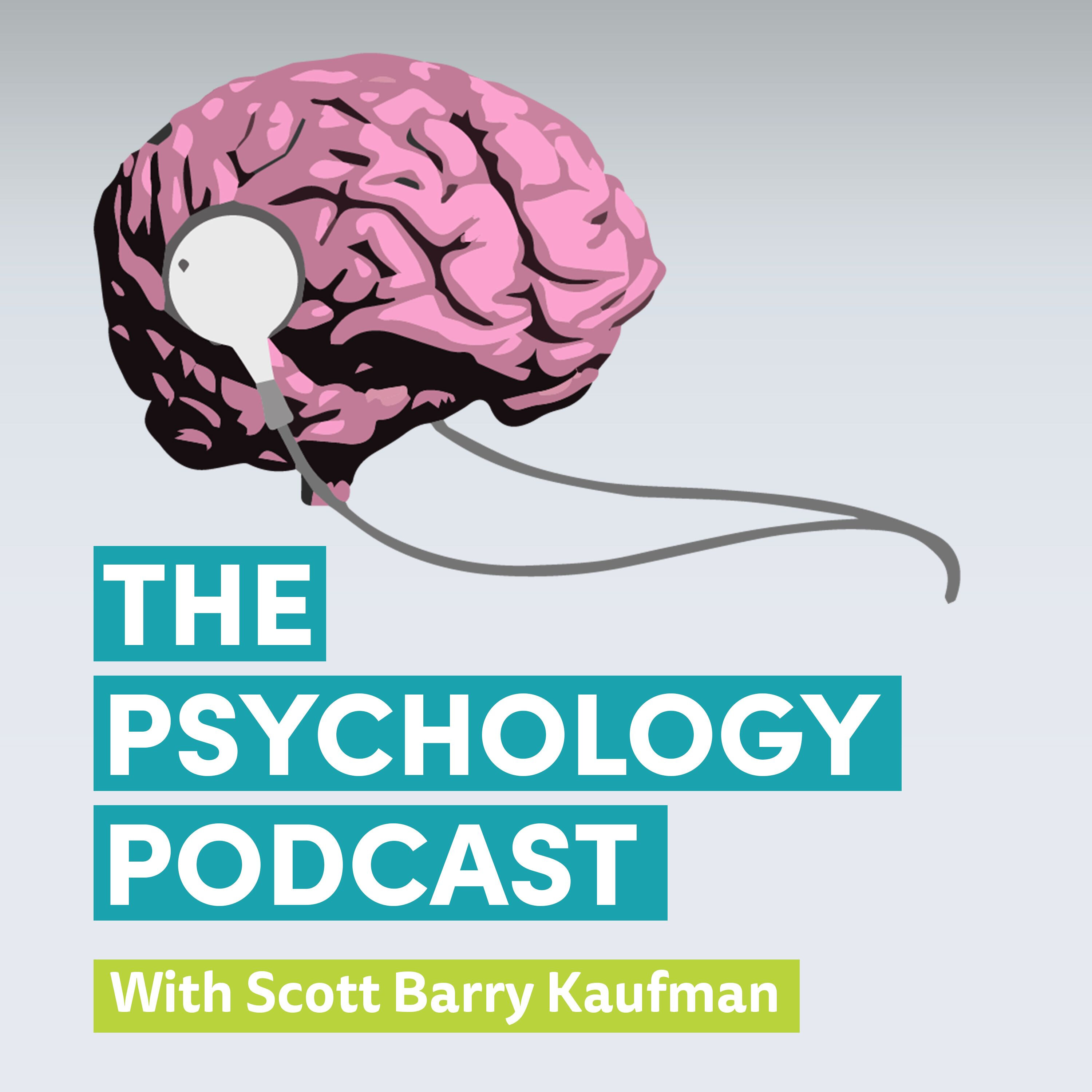
Gustav Kuhn || The Science of Magic
Today it’s great to have Gustav Kuhn on the show. Born in Switzerland, Kuhn discovered his passion for magic at the age of 13, and much of his teenage years were dedicated to the art of illusion and deception. At the age of 19 he moved to London to follow his dream of becoming a professional magician, but his career took a dramatic change after he discovered a keen interest for psychology. Gustav went on to study psychology at Sussex University, and towards the end of his PhD, he noticed a direct link between magic and psychology. His unique background in science and magic allowed him to build bridges between these two domains, which helped him establish a science of magic. Kuhn is now a Reader at Goldsmiths University of London, and director of the MAGIC-Lab (Mind Attention & General Illusory Cognition). He is one of the pioneering researchers in the Science of Magic and he is one of the founding members and president of the Science of Magic Association. His latest book is called “Experiencing the Impossible: The Science of Magic”. What is the link between psychology and magic? The link between perception and magic What is magic? What is not magic? The link between magic and well-being Early childhood experiences of magicians The link between magic and creativity The role of misdirection in magic The neural basis of magic Do we all experience the same magic? The “magician’s force” The potential for using magic for bad ends Will magicians ever become obsolete in the age of machines? The link between magic and human-machine interaction How we can use science to enhance the magic endeavor Support this podcast: https://anchor.fm/the-psychology-podcast/supportSee omnystudio.com/listener for privacy information.
47:4904/07/2019
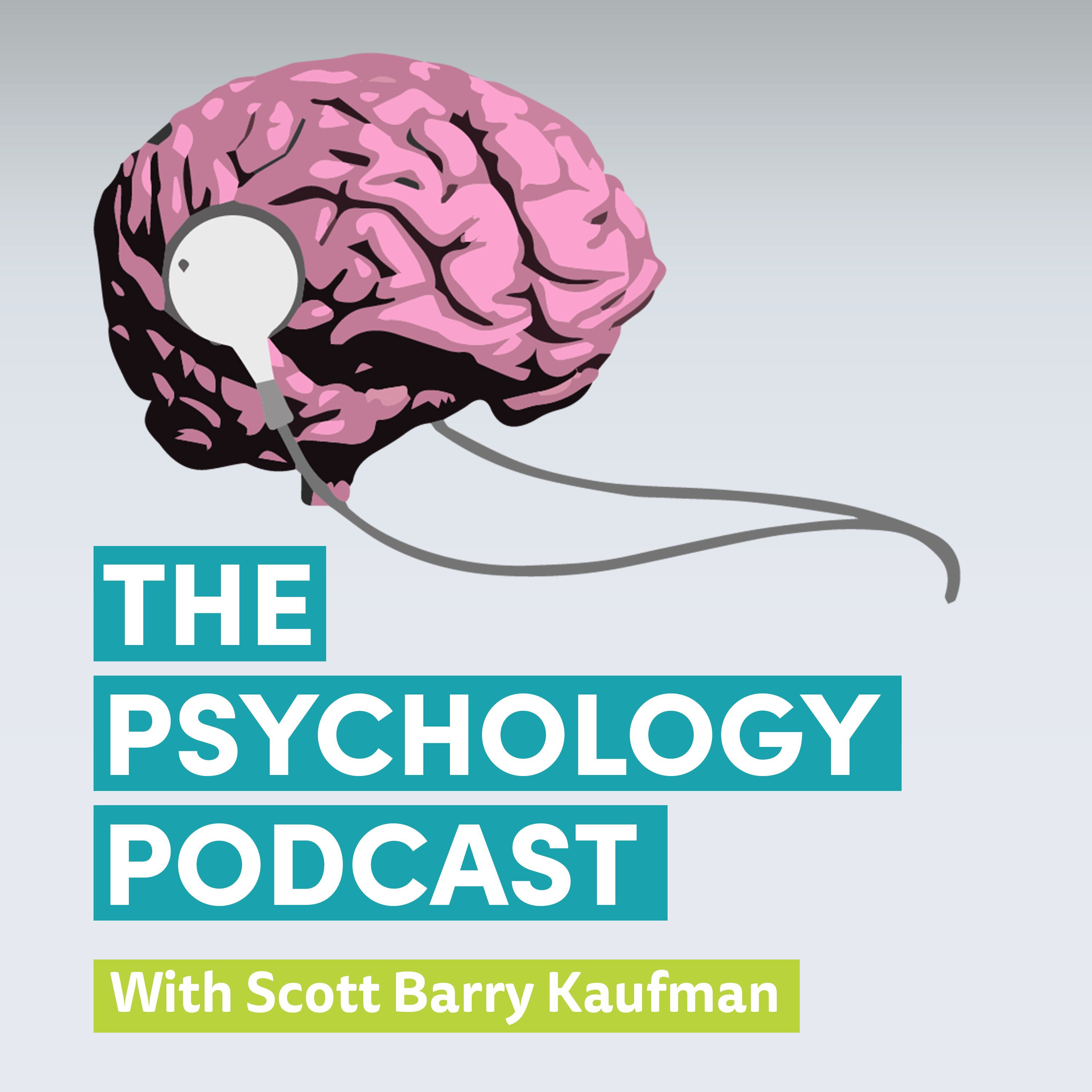
David Brooks || The Quest for a Moral Life
Today we have David Brooks on the podcast. Brooks is an op-ed columnist for The New York Times and appears regularly on “PBS NewsHour,” NPR’s “All Things Considered” and NBC’s “Meet the Press.” He teaches at Yale University and is a member of the American Academy of Arts and Sciences. He is the bestselling author of a number of books, including The Social Animal: The Hidden Sources of Love, Character, and Achievement; The New Upper Class and How They Got There; The Road to Character, and most recently, The Second Mountain: The Quest for a Moral Life. In this episode we discuss: The evolution of David’s thinking about character The relationship between our commitments and our fulfillment in life Brook’s criticism of self-actualization taken to the extreme The four crises of our time David’s current stance on reparations Why David is a “border stalker” How David reconciles the need for commitment with identity fluidity Commitment vs. individualism The importance of healthy transcendence The enunciation moment What we can do about the current political landscape David’s thoughts on polyamory and the single life Support this podcast: https://anchor.fm/the-psychology-podcast/supportSee omnystudio.com/listener for privacy information.
50:5427/06/2019
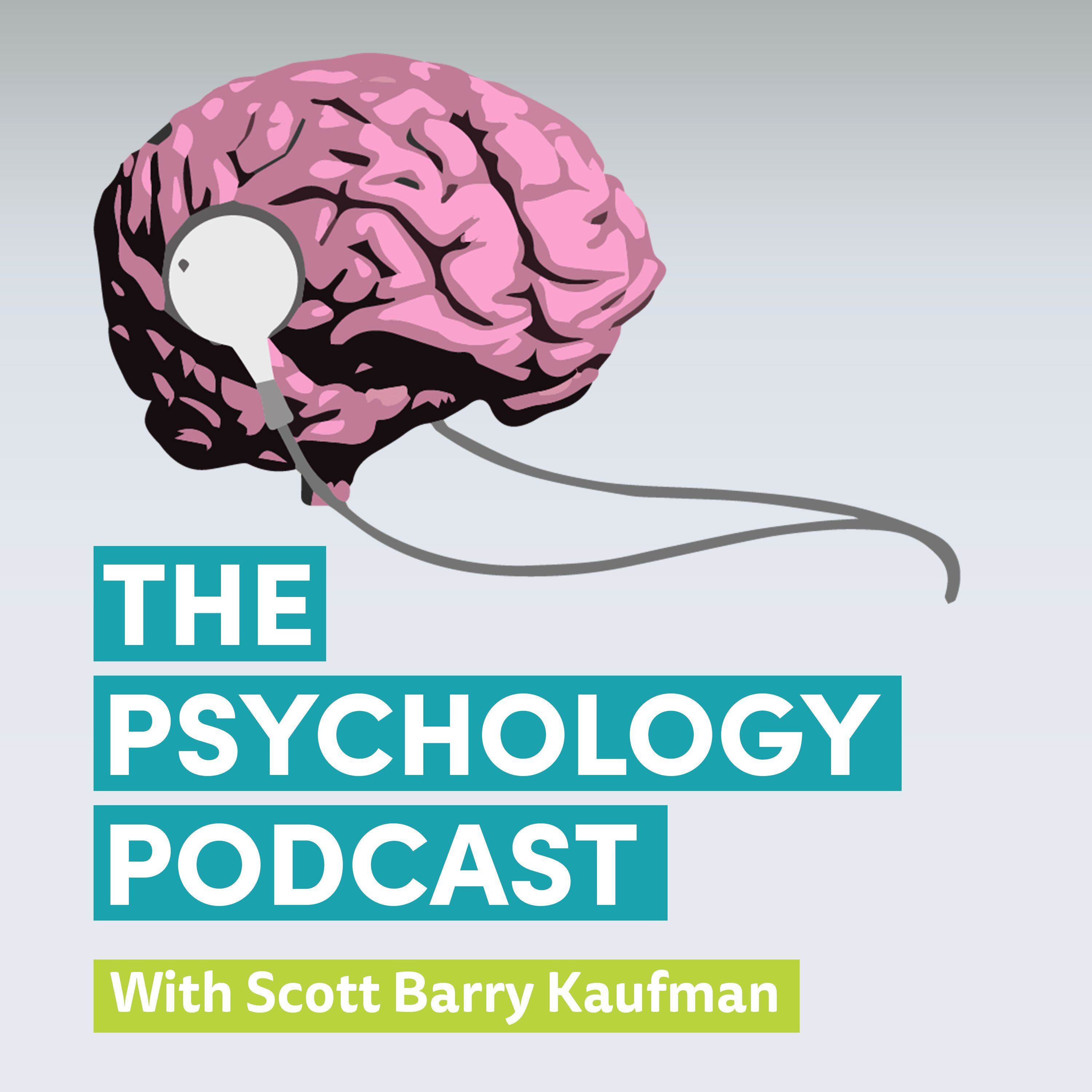
Stoya || Foucault, Heteronormativity, and Good Porn
Today it’s great to have Stoya on the podcast. Stoya has been working with sexuality for over a decade. Her writing credits include the New York Times, The Guardian, and Playboy. Her first book of essays, Philosophy, Pussycats, & Porn is available through Not A Cult Media, and her experimental porn project lives at ZeroSpaces.com. (Note: This episode is very explicit, so if that’s not your thing, please enjoy one of the other other 167 episodes of The Psychology Podcast. If you do listen to this episode, please stick around all the way to the end, as we really enjoyed tying it all together at the end of the episode!) In this episode we discuss a wide range of topics, including: What is porn? What is good porn? Can there be feminism under capitalism? Stoya’s critique of “liberal feminists” The importance of values that transcend sexual preferences How our collective conception of “normal sex” leaves out a whole lot of sexual preferences that “normal” people have Focault on how preventing the discussion of sex is making us even more obsessed with sex The science of sexual fantasies Are there any sexual fantasies that are damaging to normalize? What we can learn about privacy from pornstars The benefits/disadvantages of choosing a porn career Comparing/contrasting BDSM with monogamy Why BDSM is too wide a category to be considered a sexual orientation Why Stoya has to be physically aroused in order to be creative in a porn scene How Scott and Stoya know each other Which author – from anytime thru history – would Stoya like to go out partying with? And what would her drink of choice be for such an occasion? The link between ADHD and creativity Support this podcast: https://anchor.fm/the-psychology-podcast/supportSee omnystudio.com/listener for privacy information.
47:2306/06/2019

David Sloan Wilson and Steven Hayes || Evolution and Contextual Behavioral Science
Today we have David Sloan Wilson and Steven Hayes on the podcast. David Sloan Wilson is president of The Evolution Institute and a SUNY distinguished professor of biology and anthropology at Binghamton University. Sloan Wilson applies evolutionary theory to all aspects of humanity in addition to the biological world. His books include Darwin’s Cathedral, Evolution for Everyone, The Neighborhood Project, and Does Altruism Exist? Steven C. Hayes is foundation professor in the department of psychology at the University of Nevada, Reno. An author of forty-four books and over 600 scientific articles, his career has focused on an analysis of the nature of human language and cognition, and the application of this to the understanding and alleviation of human suffering and the promotion of human prosperity. Hayes has received several awards, including the Impact of Science on Application Award from the Society for the Advancement of Behavior Analysis, and the Lifetime Achievement Award from the Association for Behavioral and Cognitive Therapies (ABCT). Together, they edited the recent book, “Evolution and Contextual Behavioral Science: An Integrated Framework for Understanding, Predicting, and Influencing Human Behavior.” In this episode we cover a lot of ground, including: Steven’s perspective on language and cognition The difference between evolutionary science and evolutionary psychology How Skinner thought of himself as an evolutionary psychologist How evolutionary theory needs to take a step back and taken into account variation selection How evolutionary science need to be an applied discipline How evolutionary psychology done right acknowledges both an innate and adaptive component Why Steven Hayes thinks that 98% of the research we’re doing in psychology might be wrong Steven’s criticism of psychometric research (he thinks it’s “going down”!) The first time Steven encountered David’s work and how it made him cry Steven’s criticism of how the term “genetic” is used in the psychological literature Separating “pop evolutionary psychology” from good evolutionary science Renee Duckworth’s skeleton metaphor The tension between evolutionary change and stability Why we need to look at function, context, and longitudinal development in order to really balance flexibility and structure, Acceptance and Commitment Therapy (ACT) as managing the evolutionary process How multidimensionality and multi-level thinking allows us to manage evolutionary processes like never before Their upcoming book on prosociality Support this podcast: https://anchor.fm/the-psychology-podcast/supportSee omnystudio.com/listener for privacy information.
01:03:2130/05/2019
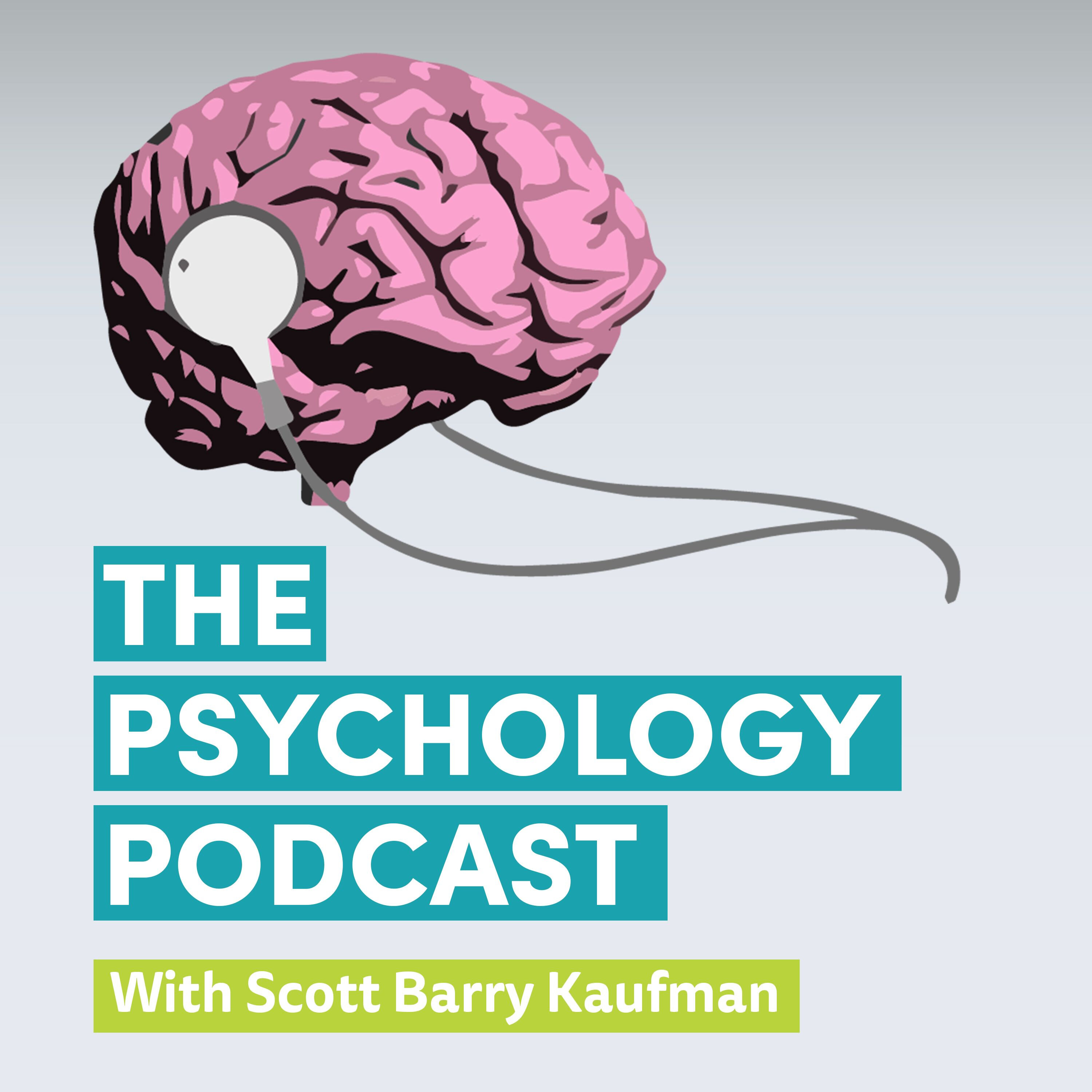
Tomas Chamorro-Premuzic || Why So Many Incompetent Men Become Leaders
“There is a surplus of charismatic leaders with a fascinating dark side.” — Tomas Chamorro-Premuzic Today it’s great to have Tomas Chamorro-Premuzic on the podcast. Tomas is the Chief Talent Scientist at ManpowerGroup, a professor of business psychology at University College London and at Columbia University, and an associate at Harvard’s Entrepreneurial Finance Lab. He’s the author of Why Do So Many Incompetent Men Become Leaders? (And How to Fix It) as well as 9 other books, and over 160 scientific publications. He is the co-founder of DeeperSignals and Metaprofiling and a regular contributor to HBR, FastCompany, and BusinessInsider. You can find him on Twitter @drtcp or at www.drtomas.com. Limitations of the “lean in” approach Tomas’s alternative explanation for the existence of gender differences in leadership How people focus more on confidence than competence How we emphasize charisma more than humility How we are more likely to select narcissistic individuals for leadership positions than people with integrity Gender differences in narcissism Is masculinity necessarily toxic? Why we waste so much money on unconscious bias training How do we get more women in leadership roles? The better way to select talented people in the workplace than using gender quotas Do nice guys finish last? Support this podcast: https://anchor.fm/the-psychology-podcast/supportSee omnystudio.com/listener for privacy information.
46:2123/05/2019

Hope is Fucked || Mark Manson
“Whether you think you’re better than everybody or worse than everybody, you’re still assuming that you are different than everybody.” — Mark Manson Today it’s great to have Mark Manson on the podcast. His blog, markmanson.net, attracts more than two million readers per month. Mark is the New York Times and international bestselling author of The Subtle Art of Not Giving a Fuck (with over 6 million in sales in the US alone) and his latest book is called Everything is Fucked: A Book About Hope. In this episode we discuss: Why we are a culture in need of hope The paradox of progress How self-control is an illusion How to learn to communicate to yourself effectively “Emo Newton’s” laws of emotion Mark’s definition of growth How to start your own religion The paradox of hope How hope can be incredibly destructive if we’re not careful Kant’s Formula of Humanity How to grow up Political extremism and maturity The difference between #fakefreedom and real freedom Why we are bad algorithms and why we shouldn’t fear artificial intelligence so much What Mark dares to hope for Support this podcast: https://anchor.fm/the-psychology-podcast/supportSee omnystudio.com/listener for privacy information.
01:16:4116/05/2019
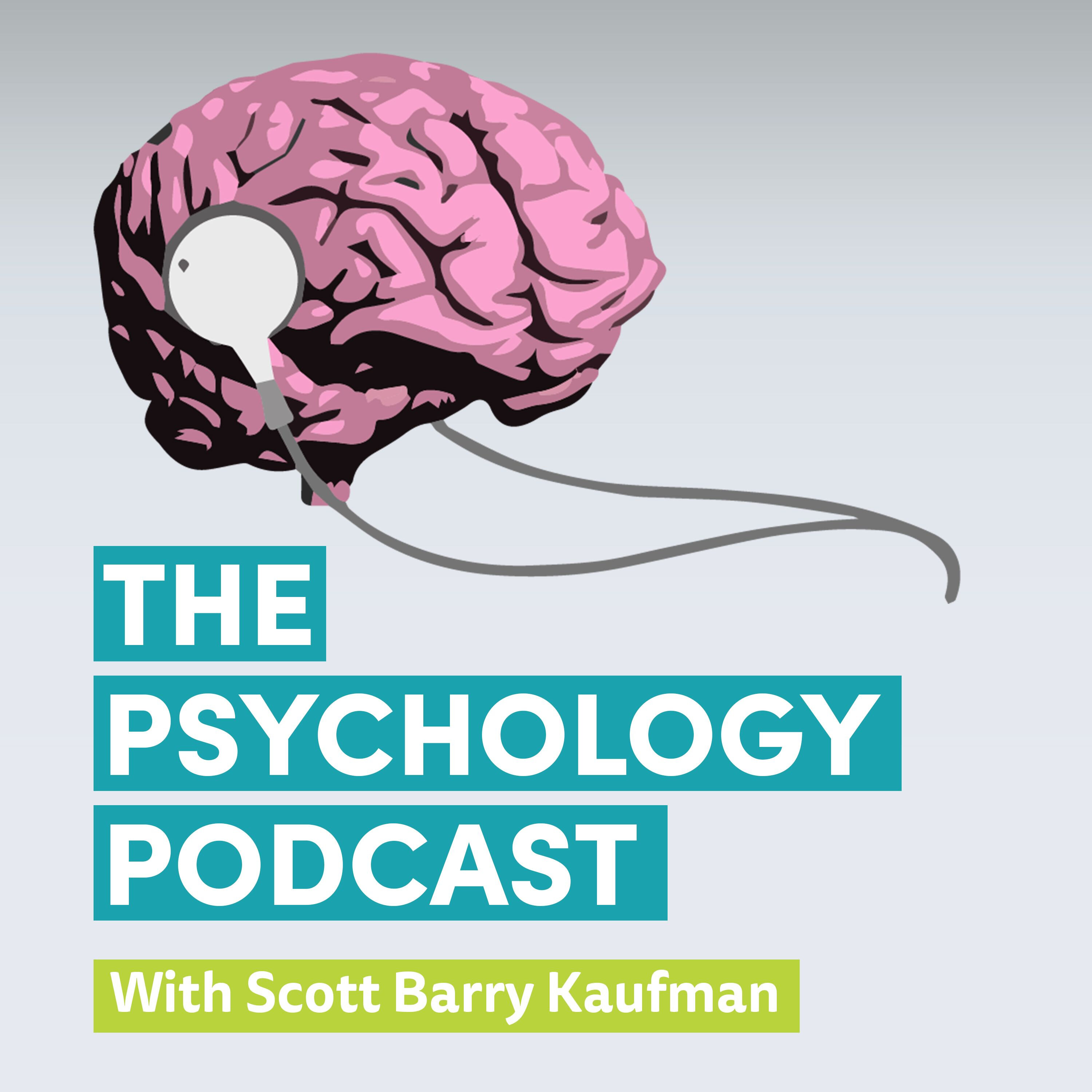
Scott Peters || Rethinking Gifted Education
Today it’s a great pleasure to have Dr. Scott Peters on the podcast. Dr. Peters is an associate professor of educational foundations and the Richard and Veronica Teller Endowed Faculty Fellow of Education at the University of Wisconsin-Whitewater where he teaches courses on measurement and assessment, research methodology, and gifted education. His research focuses on educational assessment, gifted and talented student identification, disproportionality within K-12 education, and educational policy. He is the first author of Beyond Gifted Education: Designing and Implementing Advanced Academic Programs and the co-author (along with Jonathan Plucker) of Excellence Gaps in Education: Expanding Opportunities for Talented Students, published by Harvard Education Press. In this episode we discuss: Advocates vs. scientists in the field of gifted education Does teacher training in gifted education have any effect on self-reported teaching in the classroom? How the desire for good advocacy in gifted education can bias good science The real need to advocate for kids who aren’t being challenged in the regular classroom The absurdity of teaching children based solely on how old they are Is there room at the table for all different perspectives in the gifted education field? The problem with the “gifted” label How can you balance excellence with equity? How to close the “excellence gap” in gifted education What domains should be included in gifted education? The importance of “frontloading” opportunities in school Acceleration vs. enrichment What happens when addressing underrepresentation is the main goal of gifted education? The value of using local norms for gifted student selection Is complete excellence gap reduction a reasonable goal of gifted education? Scott’s plan for addressing excellent gaps in gifted education Support this podcast: https://anchor.fm/the-psychology-podcast/supportSee omnystudio.com/listener for privacy information.
46:4409/05/2019

Gwen Gordon || Restoring the Playground
“Play is life force itself… when we can sense and amplify its most life-affirming, transformative impulses, it will point us directly to the Playground.” Today it’s great pleasure to have Gwen Gordon on the podcast. Gordon began her career building Muppets for Sesame Street. Since leaving Sesame Street, Gwen developed Awakened Play, a play-based approach to making behavior change irresistible and transformation delightful. She has applied her insights in organizations ranging from San Quentin Prison to the MIT Media Lab and from IDEO to PepsiCo. Along the way, Gwen has collected a master’s degree in philosophy and an Emmy award in children’s programming. Her latest book is The Wonderful W, which is the first picture book for grownups. In this episode we discuss: What is play? How everything is really “fear of the void” The doorway to the sense of wholeness Gwen’s experience working at Sesame Street Correcting the record about how Gwen created the Rockheads on Sesame Street Scott’s crush on Miss Piggy The shadow side to play How the playground is our true habitat The incredible importance of adult play The inherent paradoxes of play How play relates to attachment theory How play is a healthy stepping stone to healthy childhood development Support this podcast: https://anchor.fm/the-psychology-podcast/supportSee omnystudio.com/listener for privacy information.
45:1225/04/2019
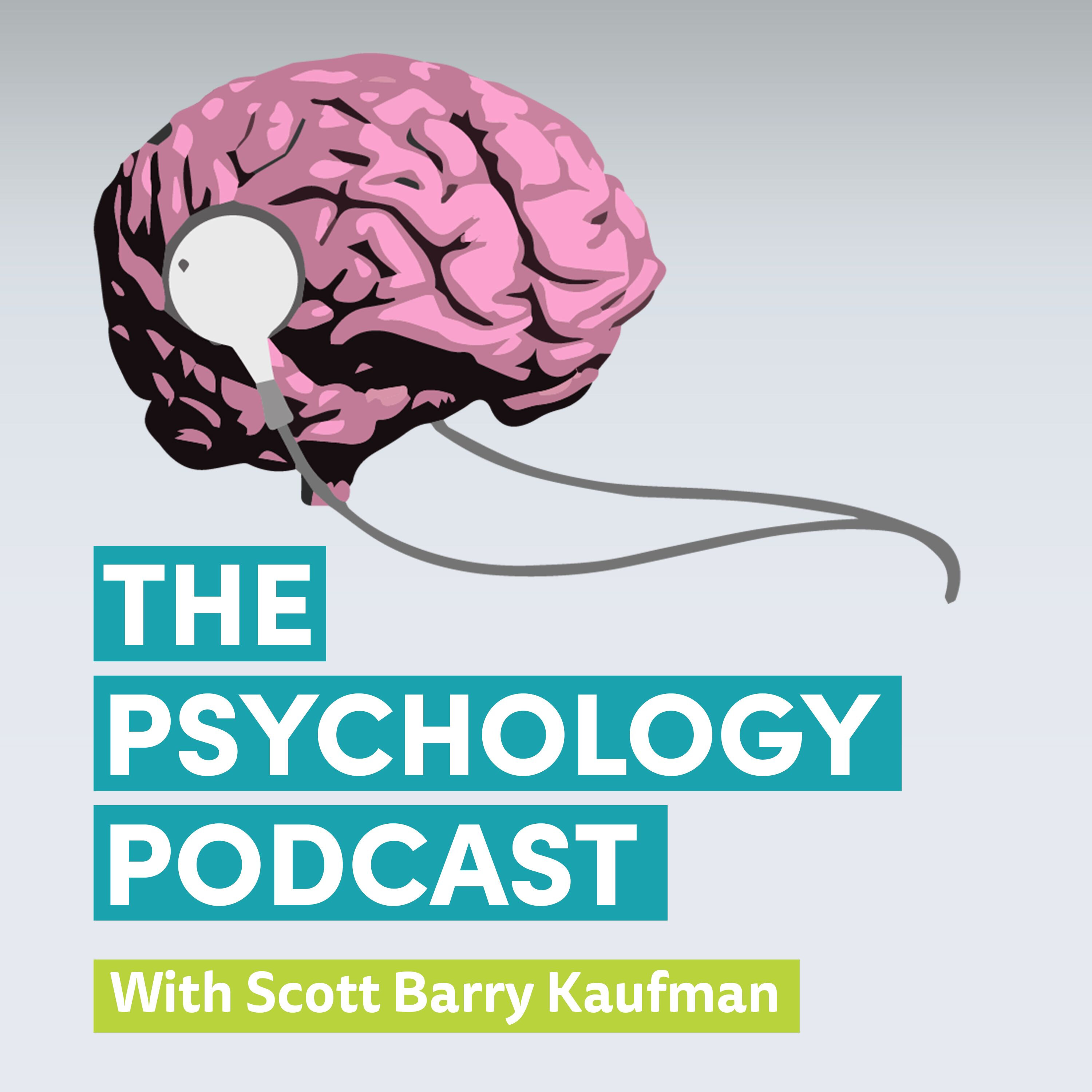
Ruth Richards || Everyday Creativity
Today it’s great to have Ruth Richards on the podcast. Dr. Richards is a psychologist, psychiatrist, professor at Saybrook University, and Fellow of the American Psychological Association. She has published numerous articles, edited/written three previous books on everyday creativity, and received the Rudolf Arnheim Award for Outstanding Lifetime Achievement (Division 10, American Psychological Association). Dr. Richards sees dynamic creative living as central to individuals and cultures, and a new worldview. Her latest book is called “Everyday Creativity and the Healthy Mind: Dynamic New Paths for Self and Society”, which recently won the won a Nautilus Silver Award. In this episode we discuss: What is “everyday creativity”? What is “universal creative potential”? All the ways people can do things differently The four P’s of creativity Openness and creativity Chaos and complexity in creativity The role of the unconscious mind in creativity The link between mental illness and creativity The controlled chaos of creativity The healing function of creativity Can consciousness get in the way of creativity? Can creativity heal the world? Support this podcast: https://anchor.fm/the-psychology-podcast/supportSee omnystudio.com/listener for privacy information.
43:4718/04/2019
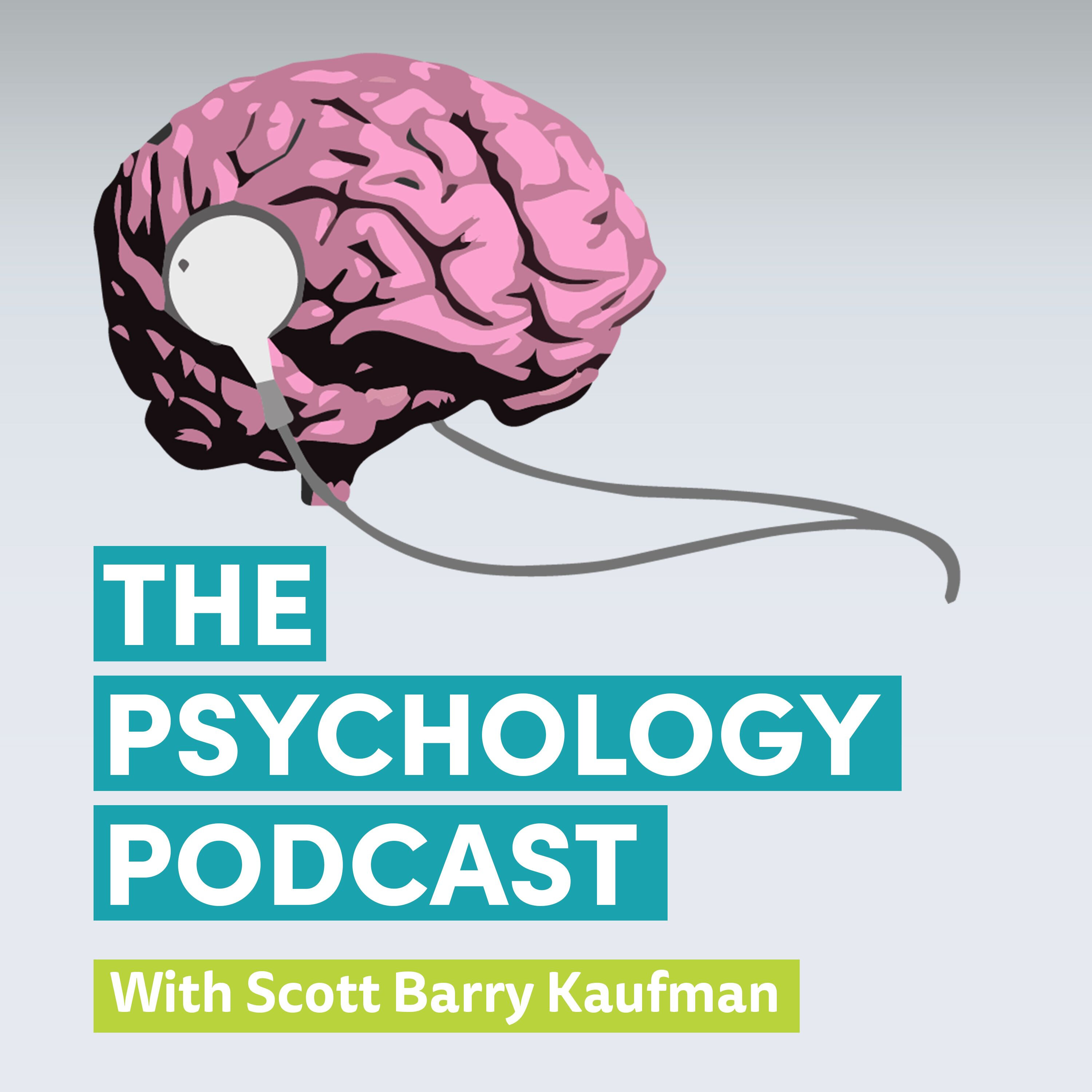
Nicholas Christakis || The Evolutionary Origins of a Good Society
"We should be humble in the face of temptations to engineer society in opposition to our instincts. Fortunately, we do not need to exercise any such authority in order to have a good life. The arc of our evolutionary history is long. But it bends toward goodness." -- Nicholas Christakis Today we have Nicholas Christakis on the podcast. Christakis is a physician and sociologist who explores the ancient origins and modern implications of human nature. He directs the Human Nature Lab at Yale University, where he is the Sterling Professor of Social and Natural Science in the departments of Sociology, Medicine, Ecology and Evolutionary Biology, Statistics and Data Science, and Biomedical Engineering. He is also the codirector of the Yale institute for Network Science, the coauthor of Connected, and most recently, author of the book Blueprint: The Evolutionary Origins of a Good Society,which on its first week became a NY Times bestseller. In this episode we discuss: Why breadth of knowledge across fields is important The evolutionary forces that have shaped our capacity for living socially Can you love your own group without hating everyone else? How can crowds be a force for good? How the capacity for friendship is connected to the evolution of cooperation Can you love your own group and evenloveother groups as well? Framing group dynamics in terms of collective narcissism The “social suite†of human nature The “forbidden experiment†Experiments on artificial societies How long will Homo Sapiens last? The importance of elephant friendships How evolution has shaped our societies The importance of recognizing our common humanity Support this podcast: https://anchor.fm/the-psychology-podcast/supportSee omnystudio.com/listener for privacy information.
56:0611/04/2019

Molly Crockett || Moral Outrage in the Digital Age
Today it’s a pleasure to have Molly Crockett on the podcast. Dr. Crockett is an Assistant Professor of Psychology at Yale University and a Distinguished Research Fellow at the Oxford Centre for Neuroethics. Prior to joining Yale, Dr Crockett was a faculty member at the University of Oxford’s Department of Experimental Psychology and a Fellow of Jesus College. She holds a BSc in Neuroscience from UCLA and a PhD in Experimental Psychology from the University of Cambridge, and completed a Wellcome Trust Postdoctoral Fellowship with economists and neuroscientists at the University of Zürich and University College London. In this episode we discuss: The discrepancy between outrage in real life vs. online outrage Cultural evolution and the selection and amplification of online content How basic reinforcement learning principles drive the design of online systems to maximize the amount of time we spend on the platforms Is the “habitual online shamer” addicted to outrage? Habitual behavior vs. addiction Is “outrage fatigue” happening en masse? Should we be thinking about rationing our outrage (reserving it for issues we find most important)? The costs and benefits of outrage Why people punish and the discrepancy between the actual reasons why we punish (inferred from behavior) vs. self-reported motives The difficulty doing science on topics that are incredibly heated in public social discourse The intractably intertwined nature of science and social justice What technologies might be doing to the way that young people construe the social world The human capacity for forgiveness Twitter Q & A Support this podcast: https://anchor.fm/the-psychology-podcast/supportSee omnystudio.com/listener for privacy information.
52:1104/04/2019

Ryan Niemiec and Robert McGrath || Ignite Your Character Strengths
Today it’s an honor to have Ryan Niemiec and Robert McGrath on the podcast. Ryan is an author or co-author of nine books, an award-winning psychologist, international keynoter, and education director of the VIA Institute on Character. Robert is Professor of Psychology at Farleigh Dickinson University, senior scientist at the VIA Institute, and has published extensively on the topic of character and virtue. Together, they are author of the new book, The Power of Character Strengths: Appreciate and Ignite Your Positive Personality. Find our your character strengths at viacharacter.org. In this episode, we discuss the following: What is a positive personality? The measurement of character strengths Why are so many people interested in learning about their character strengths? How self-knowledge can impact people positively in their lives The difference between virtue and character The three main sources of a good character Is it possible to have a perfect character? Does the perfectly virtuous person exist? Is enlightenment actually possible? The developmental trajectory of character strengths Is the development of character strengths for everybody, including those experiencing adversity? Support this podcast: https://anchor.fm/the-psychology-podcast/supportSee omnystudio.com/listener for privacy information.
54:1721/03/2019

Colin Seale || Closing the Critical Thinking Gap
“At a certain point, the outcome is the opportunity. We have to focus on the bottom line: what is it going to take to get kids ready?” — Colin Seale Today it’s great to have Colin Seale on the podcast. Colin was born and raised in Brooklyn, New York to a single mother and an incarcerated father. He has always had a passion for educational equity. Tracked early into gifted and talented programs, Colin was afforded opportunities his neighborhood peers were not. He founded thinkLaw (www.thinkLaw.us), an award-winning organization to help educators leverage inquiry-based instructional strategies to close the critical thinking gap and ensure they teach and REACH all students, regardless of race, zipcode or what side of the poverty line they are born into. When he’s not serving as the world’s most fervent critical thinking advocate, Colin proudly serves as the world’s greatest entertainer to his two little kiddos and a loving husband to his wife Carrie. In this episode we discuss: Colin’s pragmatic approach to solving educational inequalities The main goals of ThinkLaw The benefit of people of different races talking about their common humanity How we can have high expectations for every child The twice exceptional movement How we continuously lead genius on the table The excellence gap in gifted education Equality of opportunity vs. equality of outcome The right kind of love How the victory is in the struggle Giving children a reason to have grit Why we need to recognize disruptors as innovators Creating the space for divergent thinkers Support this podcast: https://anchor.fm/the-psychology-podcast/supportSee omnystudio.com/listener for privacy information.
53:0307/03/2019
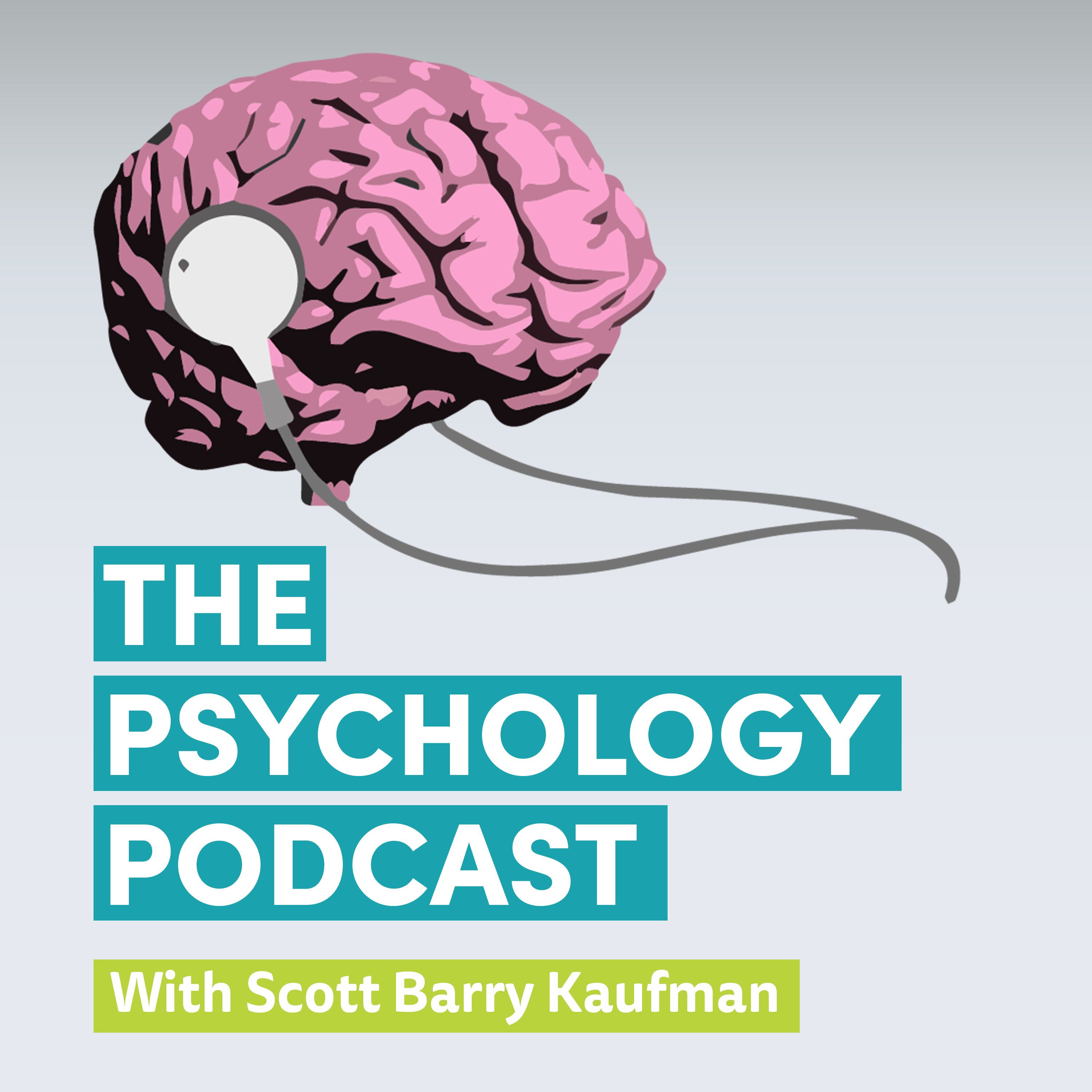
Wednesday Martin || The Flexibility of Female Sexuality
“There can be no autonomy without the autonomy to choose, without coercion or constraint, or in spite of it, who our lovers will be.” — Wednesday Martin Today we have Wednesday Martin on the podcast. Dr. Martin has worked as a writer and social researcher in New York City for more than two decades. The author of Stepmonster and the instant New York Times bestseller Primates of Park Avenue, she writes for the online edition of Psychology Today and her work has appeared in The New York Times and Time.com. Dr. Martin’s latest book is called “Untrue: Why Nearly Everything We Believe About Women, Lust, and Infidelity Is Wrong and How the New Science Can Set Us Free.” In this episode we discuss: How Wednesday tries to make the sex research “delicious and fun” How female infidelity is mired in so much misunderstanding How Millenial women are more sexually adventurous compared to Millennial men What’s the consensual non-monogamy movement? How we evolved to be “cooperative breeders” What is “female flexuality”? Why we need to stop pathologizing those who embrace non-monogamy How women are driving the polyamory movement The good reasons why monogamy is hard and the other options that exist How your attachment style and sociosexuality are linked to consensual non-monogamy Disagreeable women and sociosexuality Rethinking sex differences in the drive for sexual novelty Pornography viewing differences between men and women Common triggers of violence in relationships Rethinking the motivations underlying sex differences in cheating How better science can help us all have hotter sex Support this podcast: https://anchor.fm/the-psychology-podcast/supportSee omnystudio.com/listener for privacy information.
01:15:2914/02/2019
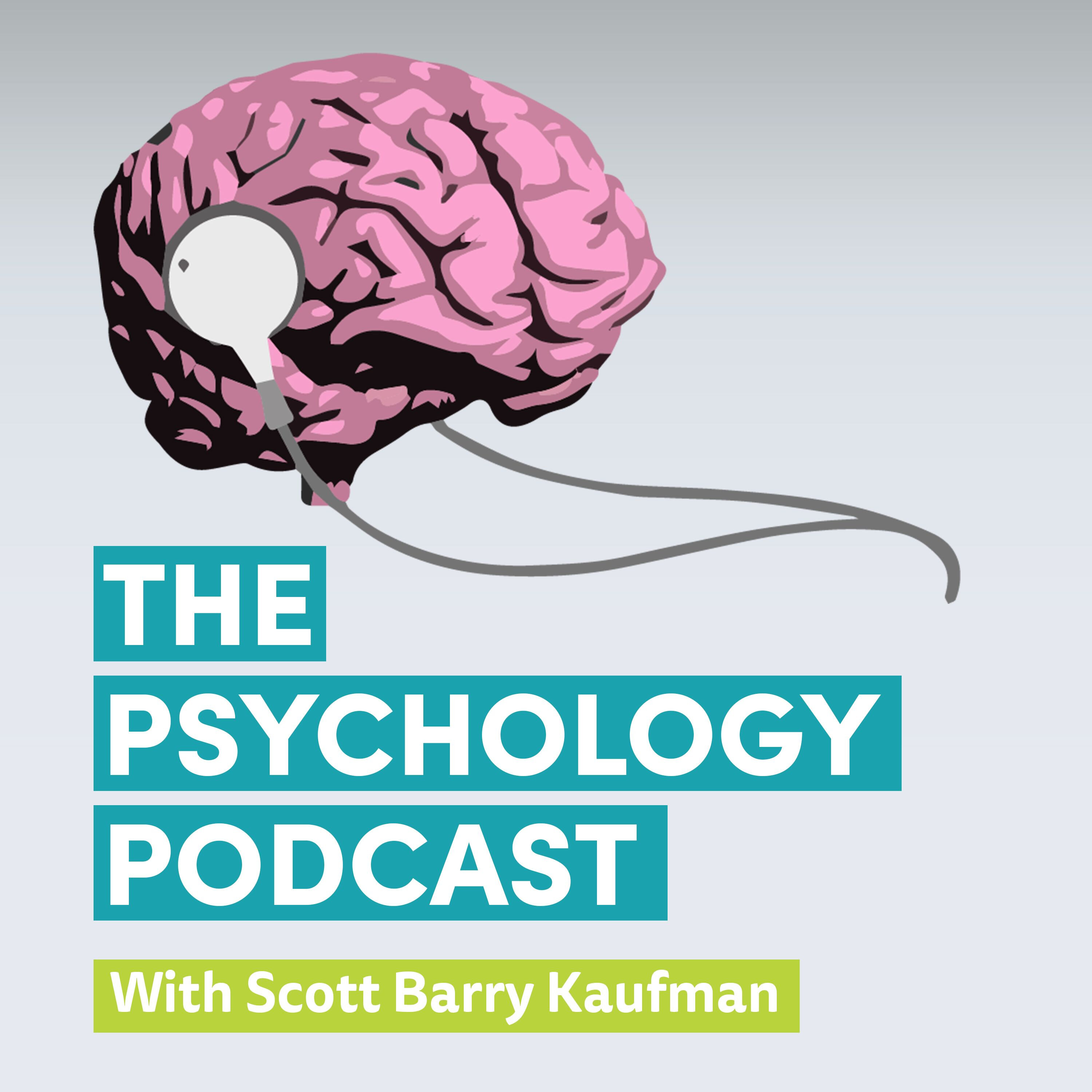
Todd Herman || The Alter Ego Effect
“At the end of your life, you won’t remember the thoughts or intentions you had. You’ll remember the actions you took. You’ll judge yourself by how you showed up, by what you did, what you said, how you acted, and whether you performed the way you knew you could in any of the stages of life.” Today we have Todd Herman on the podcast. Herman is a performance advisor to Olympians, pros, and business leaders, and he creates proven systems to help teams & achievers win with less stress. Herman’s latest book is “The Alter Ego Effect: The Power of Secret Identities to Transform Your Life.” - How alter egos are part of the human psyche - The difference between childish and childlike - Why having an alter ego is about being the best version of yourself - Multiple self theory and the importance of context - The Core Self vs. The Trapped Self vs. The Heroic Self - How to go from an ordinary world to an extraordinary world - How to activate the person you truly want to become - How to get into the “wow” mindset - Todd’s traumatic backstory and how it has led to his superpower - The hidden forces of the enemy - How the creative imagination is like the backdoor to performance Support this podcast: https://anchor.fm/the-psychology-podcast/supportSee omnystudio.com/listener for privacy information.
56:1207/02/2019

Oren Jay Sofer || A Mindful Approach to Nonviolent Communication
Finding your voice, learning how to say what you mean, and how to listen deeply: this is one of the most rewarding journeys you can take.” — Oren Jay Sofer Today we have Oren Jay Sofer on the podcast. Sofer teaches meditation and communication nationally. He holds a degree in Comparative Religion from Columbia University, and is a member of the Spirit Rock Teacher’s Council. He is also a Certified Trainer of Nonviolent Communication, a Somatic Experiencing Practitioner for healing trauma, and he is the Senior Program Developer at Mindful Schools. Sofer is author of Say What You Mean: A Mindful Approach to Nonviolent Communication. In this episode we discuss: The importance of slowing down Marshall Rosenberg’s system of nonviolent communication How our behaviors can viewed as an attempt to meet a deeper need Entering relationships from a sense of deprivation vs. a place of growth The importance of relational awareness The undervalued skill of healthy communication Why intention is the single most important ingredient in dialogue Martin Buber’s distinction between the I-Thou vs. I-It relationship The importance of the “do over” How to heal after a breakup The importance of forgiveness and how it happens on its own time schedule Support this podcast: https://anchor.fm/the-psychology-podcast/supportSee omnystudio.com/listener for privacy information.
47:5024/01/2019
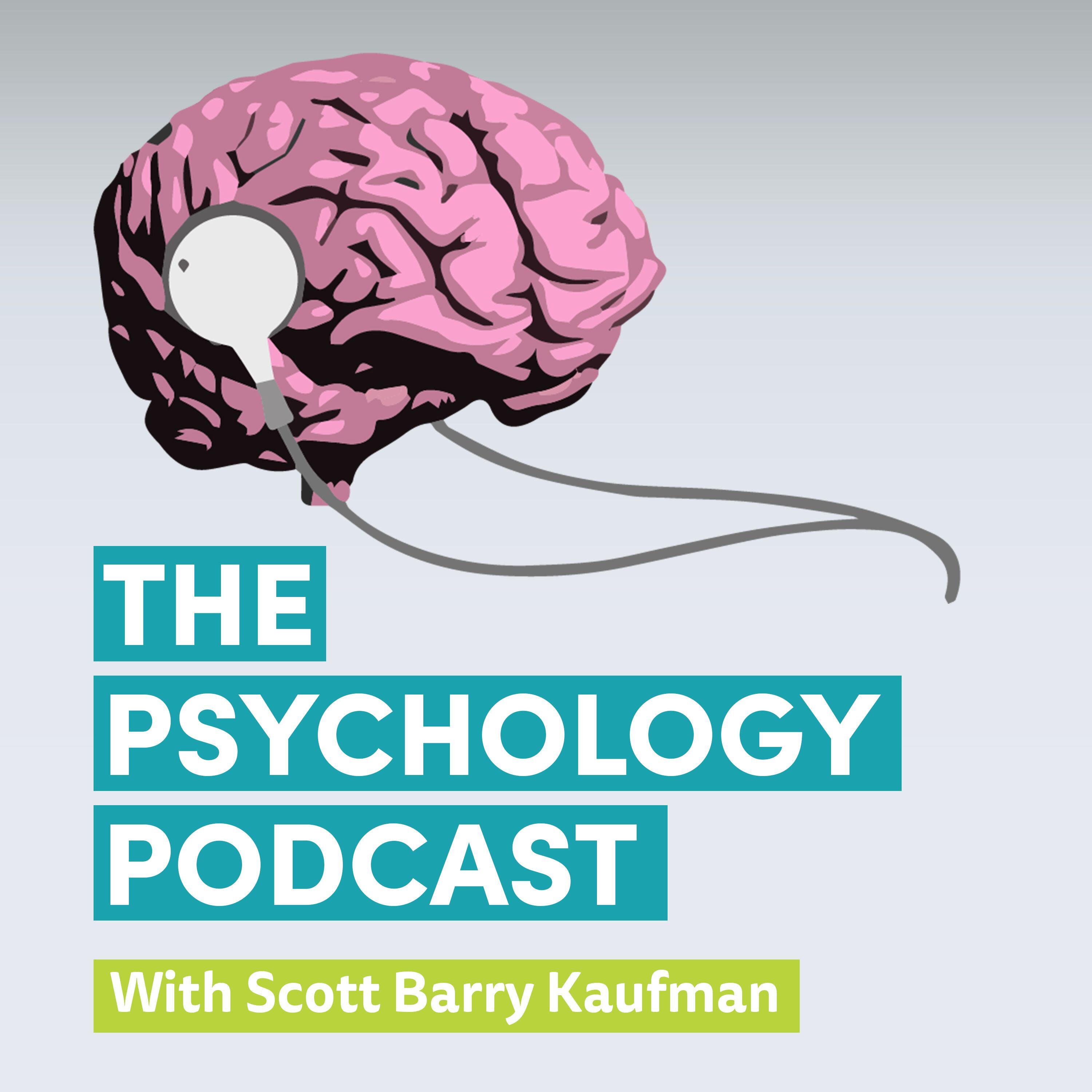
Richard Katz || Honoring the Wisdom of Indigenous Peoples
Today it’s an honor to have Richard Katz on the podcast. Dr. Katz received his Ph.D. from Harvard University and taught there for twenty years. The author of several books, he has spent time over the past 50 years living and working with Indigenous peoples in Africa, India, the Pacific, and the Americas. He is professor emeritus at the First Nations University of Canada and an adjunct professor of psychology at the University of Saskatchewan. He lives in Saskatoon, Saskatchewan. His latest book is Indigenous Healing Psychology: Honoring the Wisdom of the First Peoples. Author royalties will be given back to the Indigenous elders whose teachings made the book possible. In this episode we discuss: How being an outsider allows you to see the limitations of the world you are living in Richard’s friendship with Abraham Maslow Setting the record straight: The real influence of the Blackfeet Nation on Maslow’s theory of self-actualization How modern day psychology has oppressed the verbal-experimental paradigm The limitations of modern measurement The tension between the scientific method and the narrative approach to psychology Are all modes of the scientific process valid? How indigenous people are misunderstood, under-respected, and under-appreciated What the field of psychology could be if it incorporated indigenous ways of being Link Kalahari People’s Fund Support this podcast: https://anchor.fm/the-psychology-podcast/supportSee omnystudio.com/listener for privacy information.
55:4110/01/2019

Kati Morton || How to Care for Your Mental Health
Today I’m really excited to have Kati Morton on the podcast. Morton is as an entrepreneur, YouTube creator, and Licensed Marriage and Family Therapist practicing in Santa Monica, CA. Morton has built a global mental health online community, and is author of the book “Are U OK?: A Guide to Caring for Your Mental Health.” In this episode we discuss: What’s the difference between mental health and mental illness? Breaking down the stigma of mental illness What should you look for when looking for a therapist? What are some warning signs of a terrible therapist? What’s the best way to deal with a toxic co-worker? What's the link between vulnerable narcissism and borderline personality disorder? How do you know if you need mental help? What are some of the most validated forms of therapy available today? How do you break up with friends that you’ve outgrown? The importance of healthy assertiveness How a very small no can equate to a very large yes How can you get more mental help when you need it? Support this podcast: https://anchor.fm/the-psychology-podcast/supportSee omnystudio.com/listener for privacy information.
43:2927/12/2018
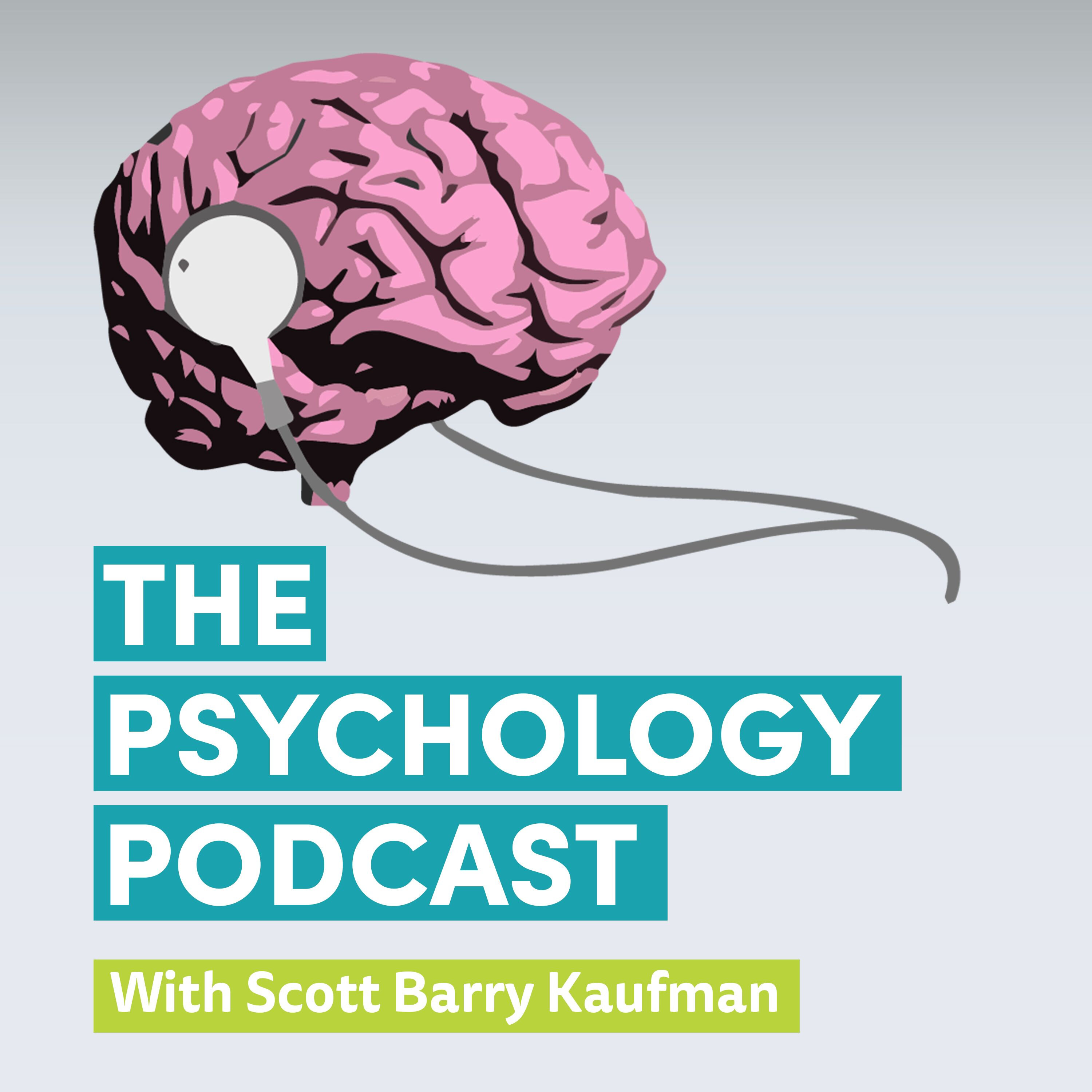
Jonah Sachs || Unsafe Thinking
Today we have Jonah Sachs on the podcast. Jonah is an author, speaker, storyteller, designer, and entrepreneur. He is the author of Winning the Story Wars: Why Those Who Tell— and Live— The Best Stories Will Rule the Future, and most recently, Unsafe Thinking: How to Be Nimble and Bold When You Need It Most. In this episode we discuss: What is safe unsafe thinking? The power of intuition for creativity Does your subconscious have free will? Dual-process theory and creativity How can you challenge and change yourself when you need it most? The importance of context for creativity The different phases of the creative process The importance of rocking the boat The benefits of collaborating with your enemies How can you stay motivated when changing habits is so hard? What’s the difference between flow and deliberate practice? The difference between values and identity Making a safe culture for risks How to gamify dissent Support this podcast: https://anchor.fm/the-psychology-podcast/supportSee omnystudio.com/listener for privacy information.
42:3320/12/2018
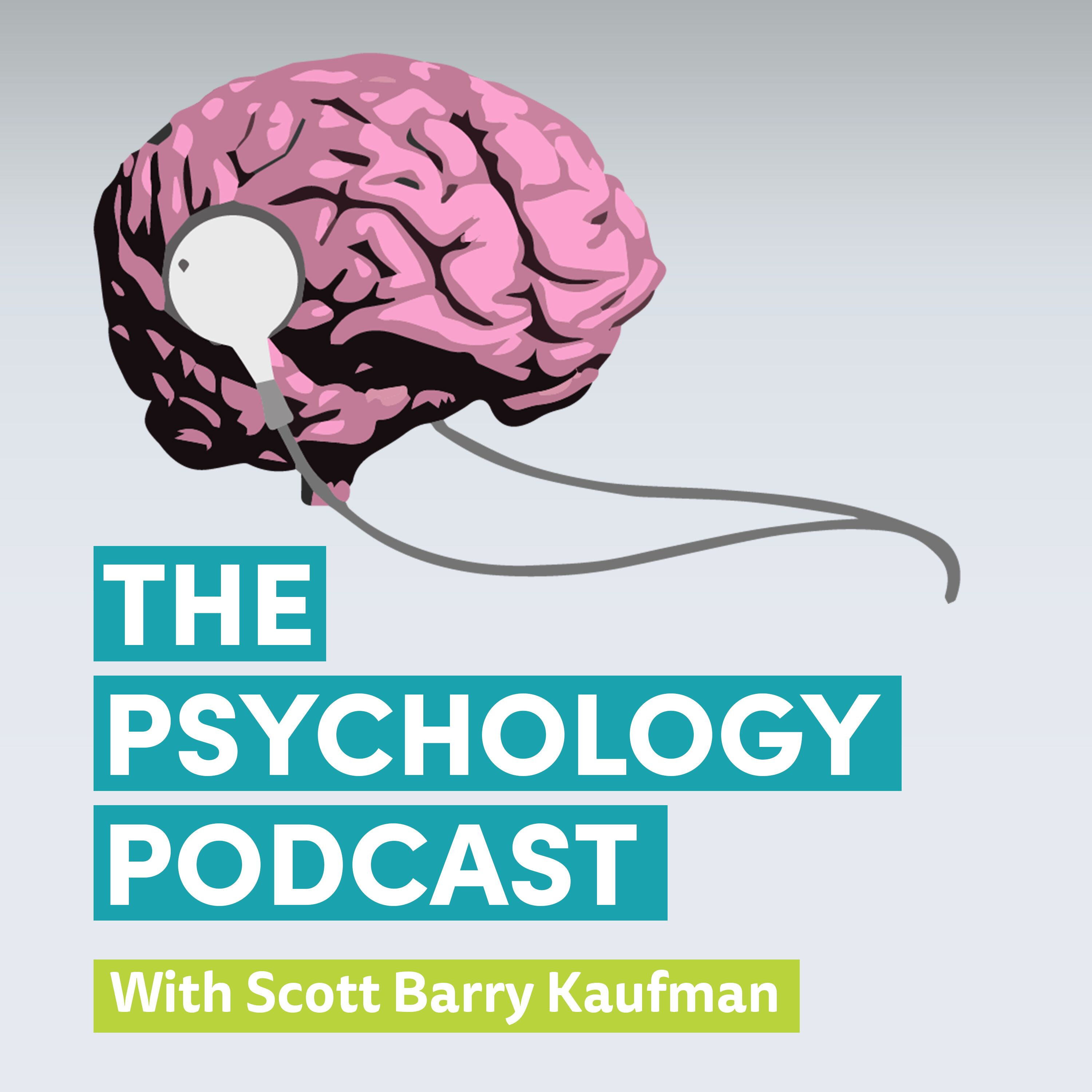
Michael Inzlicht || The Replication Crisis
Today we have Dr. Michael Inzlicht on the podcast. Dr. Inzlicht's primary appointment at the University of Toronto is as professor in the Department of Psychology, but he is also cross-appointed as Professor at the Roman School of Management, and he is a Research Fellow at the Behavioral Economics in Action group. Michael conducts research that sits at the boundaries of social psychology, cognitive science, and neuroscience. Along with Yoel Inbar, he hosts the podcast “Two Psychologists Four Beers.” In this episode we discuss: How serious is the replication crisis in psychology? Can the human social realm ever be removed from scientific critique? Do psychologists need to grow a thicker skin? Academic bullying vs. respectful critique Is there a gendered element to bullying in science? Is ego depletion real? Methodological issues with the ego depletion paradigm Real world ego depletion vs. laboratory-based ego depletion The lack of correspondence between self-report measures of self-control and performance measures The importance of distinguishing between self-control and self-regulation The paradoxical relationship between trait self-control and state self-control The "law of least work" or why we are so lazy most of the time The psychology of boredom Support this podcast: https://anchor.fm/the-psychology-podcast/supportSee omnystudio.com/listener for privacy information.
56:3613/12/2018
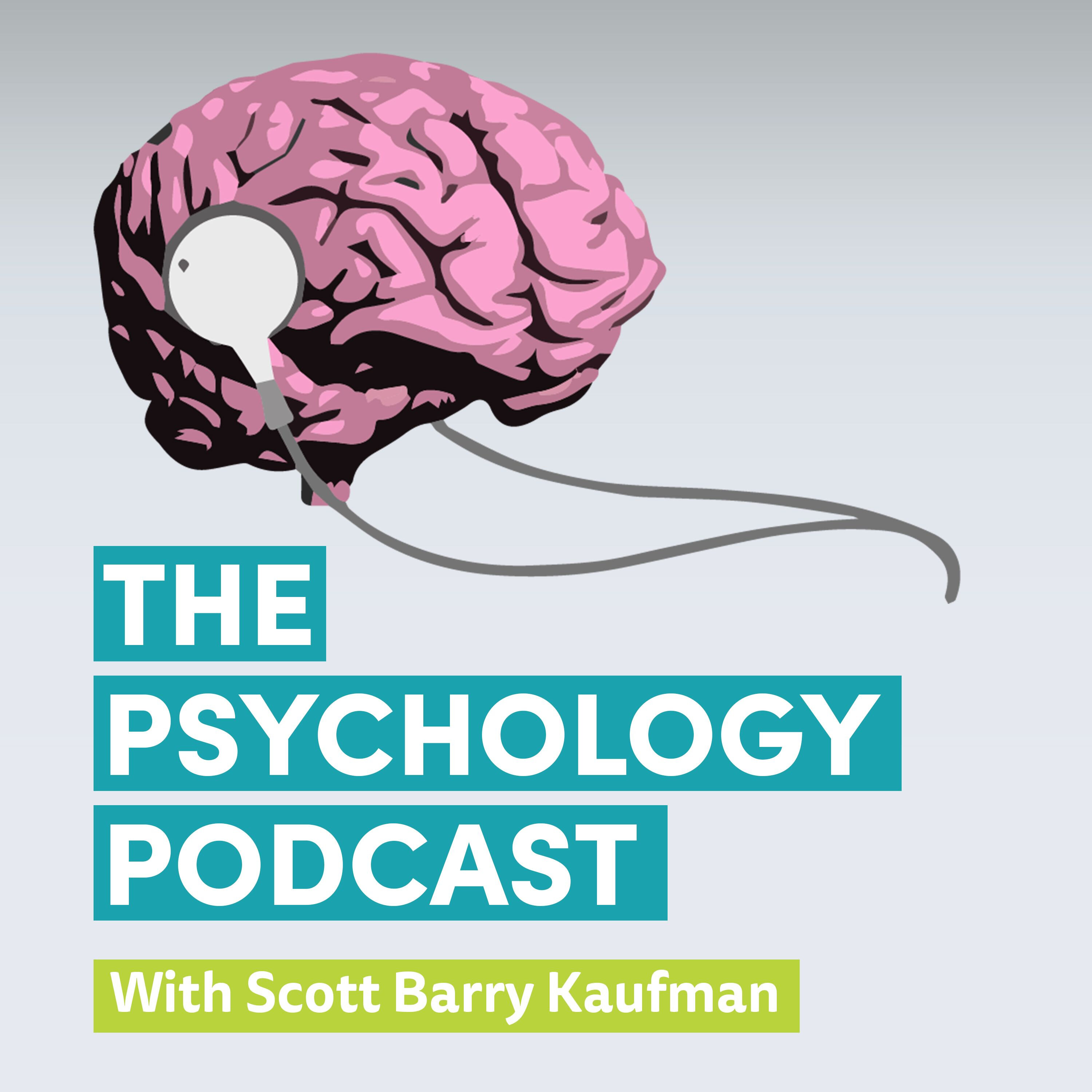
Drunk Science || Shannon Odell
Today we have Shannon Odell on the podcast. Odell is a Brooklyn based writer, comedian, and scientist. She co-hosts and produces Drunk Science, an experimental comedy show deemed “a stroke of genius” by Gothamist and a finalist in TruTV’s comedy break out initiative. She also co-created, writes, and stars in the Inverse original series “Your Brain on Blank”, where she explains the science behind how everything-from alcohol to caffeine to puppies- affects the brain. She can also be seen at Weill Cornell Medicine, where she is a Neuroscience PhD candidate studying the epigenetic underpinnings of hippocampal function. You can visit Shannon’s YouTube channel here. How Shannon got into science comedy How science can be funny Similarities between the personalities of comedians and scientists Political correctness in comedy and science How science communication is often so humorless Your brain on… the flu. Your brain on… breakups. Your brain on… puppies. Your brain on… caffeine. Your brain on… social media. Epigenetics and the effects of early life adversity on the brain How science can inform treatment options Barriers for women entering science Support this podcast: https://anchor.fm/the-psychology-podcast/supportSee omnystudio.com/listener for privacy information.
35:5406/12/2018





